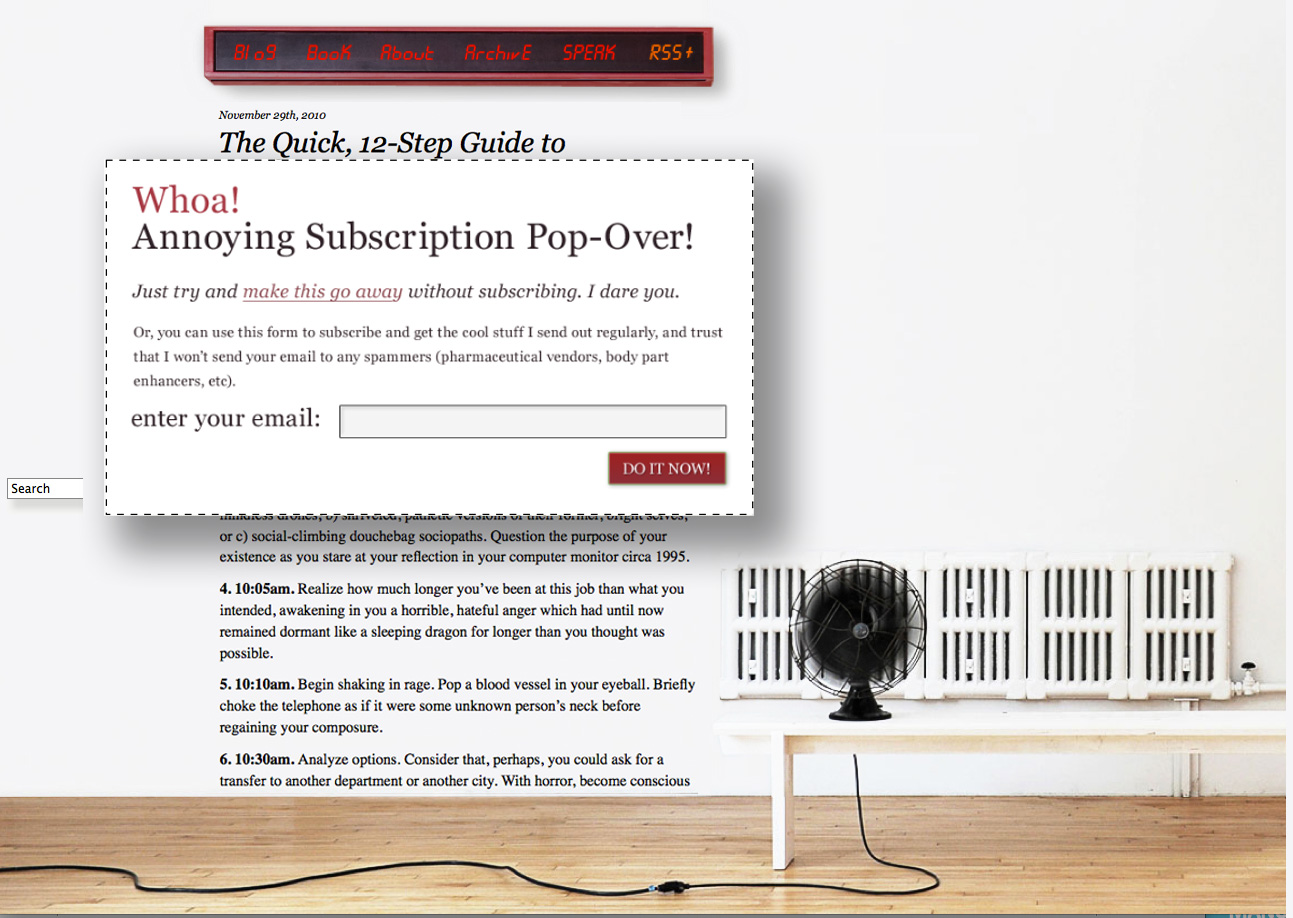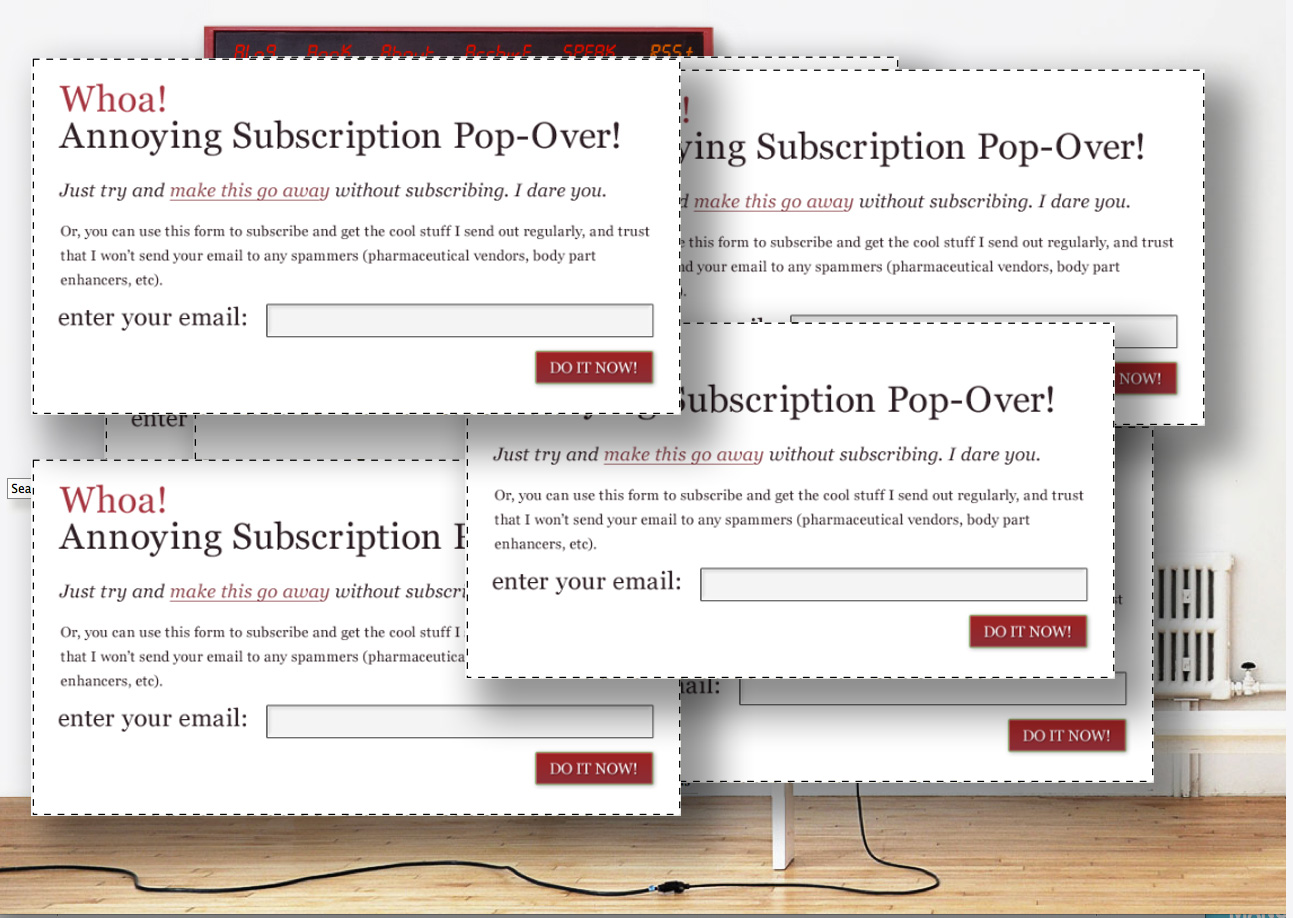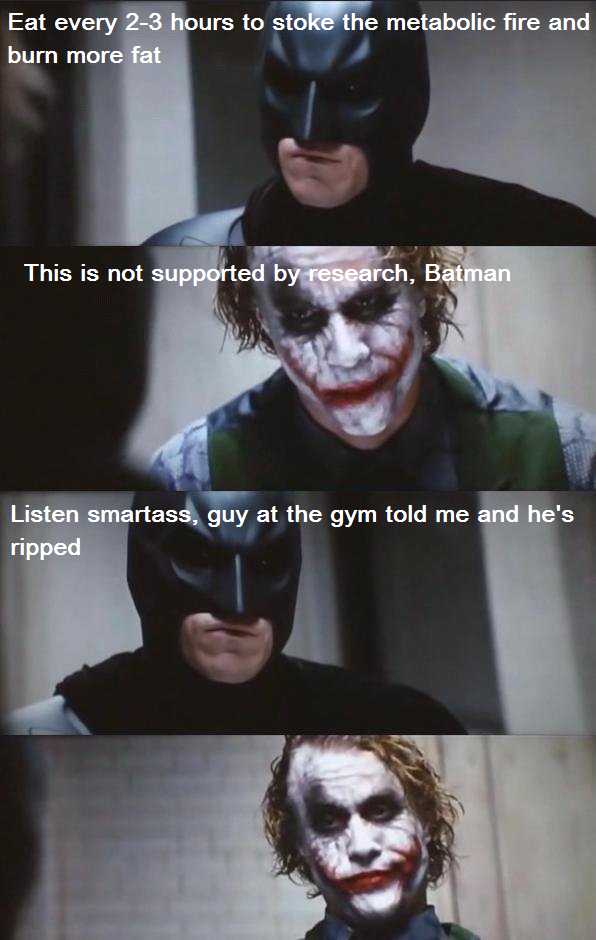Best of
April 25th, 2011
The Complete Guide to Not Giving a Fuck
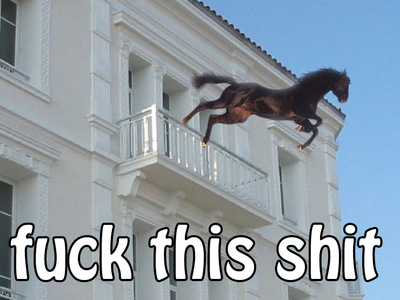
Ok, I have a confession to make.
I have spent almost my whole life– 31 years– caring far too much about offending people, worrying if I’m cool enough for them, or asking myself if they are judging me.
I can’t take it anymore. It’s stupid, and it’s not good for my well being. It has made me a punching bag– a flighty, nervous wuss. But worse than that, it has made me someone who doesn’t take a stand for anything. It has made me someone who stood in the middle, far too often, and not where I cared to stand, for fear of alienating others. No more. Not today.
Today, ladies and gentlemen, is different.
We’re going to talk about the cure. We’re going to talk about what’s necessary. We’re going to talk about the truth.
Do you wonder if someone is talking shit about you? Whether your friends will approve? Have you become conflict-avoidant? Spineless?
Well, it’s time you started not giving a fuck.
FACT NUMBER 1. People are judging you right now.
Yes, it’s really happening right at this moment. Some people don’t like you, and guess what? There’s nothing you can do about it. No amount of coercion, toadying, or pandering to their interests will help. In fact, the opposite is often true; the more you stand for something, the more they respect you, whether it’s grudgingly or not.
What people truly respect is when you draw the line and say “you will go no further.” They may not like this behaviour, but so what? These are people don’t like you anyway, why should you attempt to please people who don’t care for you in the first place?
Right. Then, there’s Internet trolls. That’s a whole other thing.
Regular people are fine– you don’t actually hear it when they’re talking behind your back. But on the web, you do see it, which changes the dynamic drastically. They have an impact because they know you have your vanity searches, etc. But the real problem with Internet haters is that they confirm your paranoid delusion that everyone out there secretly hates you.
Thankfully, that’s not actually true. So the first noble truth is that most people don’t even care that you’re alive. Embrace this, my friends, for it is true freedom. The world is vast and you are small, and therefore you may do as you wish and cast your thoughts of those who dislike it to the side.
FACT NUMBER 2. You don’t need everyone to like you.
This stuff is crazy, I know, but it’s cool, you’ll get used to it. Here’s the next thing: not only do most people not know that you exist, and some are judging you, but it totally does not matter even if they are.
How liberating this is may not even hit you yet, but it will. Check this out: when people don’t like you, nothing actually happens. The world does not end. You don’t feel them breathing down your neck. In fact, the more you ignore them and just go about your business, the better off you are.
You know when they say “the best revenge is a life well lived”? Well, this is true, but it isn’t the whole truth. A life well lived is great, yes, but it cannot happen while you are sweating about who your detractors are and what they think. What you have to do, what you have no choice but to do, is accept it and move on.
So not giving a fuck is actually a necessary precedent to create a good life for yourself. It can’t happen without it. That’s why you have to begin today.
FACT NUMBER 3. It’s your people that matter.
Ok, so you’ve adjusted to the fact that most people in the world are barely aware of your existence, and you’re also conscious of the fact that those who don’t like you are in the obscenely small minority and don’t actually matter. Awesome. Next you need to realize that the people who do care about you, and no one else, are those you need to focus on.
Relationships are weird. Once we’re in one (with family, a spouse, whatever), we promptly begin to take the other person for granted and move on to impressing strangers instead– say, our boss. Then, once we’ve impressed our boss, we start taking him for granted too, and so on, in an endless cycle of apathy. It’s like we always prefer to impress and charm the new than to work on what we already have.
But these people– your champions– they understand your quest or your cause. They make you feel good when you’re around them, make you laugh or make you feel like you can just be yourself. They make you feel relaxed or at ease. You’ve shared things with them. They’re important. Focus on them instead.
FACT NUMBER 4. Those who don’t give a fuck change the world. The rest do not.
So I’m reading this horrible book right now by Stephen King called the Long Walk. It’s a contest where people walk without sleeping or resting, and if they do stop, they are killed. (That’s actually every Stephen King book– “there’s a clown, but it kills!” “There’s a car, but it kills!” etc.)
I suspect this book is a metaphor for war, but it also captures perseverance very well. What it takes to move past anything is to simply realize that your obstacle is unimportant, and that it can be dismissed. This is true whether you’re running a marathon or trying to get to Mars.
If you dismiss the things that do not matter; if you remove those things from your mind and focus on what must be done; if you understand that your time is limited and decide to work now; only then will you be able to get to the finish line. Otherwise, you will be dissuaded into living a life you aren’t interested in.
Side note: You need to handle failure and obscurity better. You may be in a tough place right now where you feel lonely or like a loser. No worries, we’ve all been there. But it’s time for you to realize how common these things are, and that they’re experienced by even the most successful and happiest people in the world. Those people get past them, and you will too.
The eye is watching
You want to know something? This actually has nothing to do with anyone else. It has everything to do with you.
I had a discussion with Jonathan Fields the other week that was about the use of swearing (and “true voice”) on blogs. I watched him on a Skype video as we did this, and I could actually pinpoint the moment where he was about to say “fuck” but almost stopped himself. It was amazing. So I called him out on it. “You felt it just now, didn’t you?”
Everyone has an internetal eye. It always watching. It has been slowly constructed by society at large and by your friends and family, and it checks you for unacceptable behaviour. If you have had it around for long enough, you actually start to believe that the eye is you, and that you’re “being reasonable” or some other rationalization.
But the eye isn’t you at all. It is a prison, and you have justified its existence by obeying it. It’s strong because you let it be strong.
But the secret, the part that’s amazing, is that it can’t do anything to stop you, even if it wanted to. It’s an eye. It can only watch. The rest of you is free to act as you wish.
How to get back your self-respect in five easy steps
STEP 1. Do things that you consider embarrassing.
My girlfriend and I have been breaking in Vibram Fivefingers in preparation for the massive walk we are doing. Have you ever seen these shoes? They’re amazing for you knees and give you no blisters, but they are the ugliest thing imaginable. Yesterday, I wore them with a sweet bowtie I put on for Easter. I looked like a crazy person.
As I said at the beginning of this post, I am deeply aware and can become quite upset by people’s judgment– I think a lot of people are, but don’t admit it. But as I walked by people in my techno-clown outfit, not a single person looked at me. Nobody cared, and it slowly dawned on me that even if people did look at me weird, they just walked by. Later, they would forget about me entirely.
You must try this. Find your internal filters and break them, one at a time. Notice how society, like an ocean, smoothes over the waves you make, until what you do gets eliminated, or becomes the status quo. Work with this.
STEP 2. Accept, or deal with, awkwardness.
It’s widely known that interviewers get their best material by being quiet and allowing silence to force words out of a politician or celebrity.
You may be uncomfortable with silence. I know I still am. But I have been working on it and have to say that it is a much more serene state to be in than trying to cover it up with random babbling just to fill up the air. This is one type of awkwardness, a kind that you should feel comfortable about and learn to live with.
Another kind of social awkwardness is this in-between space where you might have done something wrong or been wronged, but don’t say anything. I’ve been given a few harsh lessons in my time and come away realizing that the freedom that comes from talking about an uncomfortable truth is better than the comfort of avoiding that talk altogether.
Someone told me recently that the Clintons’ method for earning respect in politics is this: if someone pushes you, push back twice as hard. This is much better than awkwardness. It’s clear, it’s not passive aggressive, and you know where you stand. Start doing this immediately.
STEP 3. Refuse boundaries.
The video above was taken in 1970, right when the Front de Libération du Québec had killed Premier Pierre Laporte and put his body in the trunk of a car. Trudeau’s “Just watch me” is one of the most famous phrases in Canadian political history. The journalists are trying to trap him into choosing on-camera between a safety/police-state and civil liberties/freedom but Trudeau refuses their boxes.
The Liberal Party of Canada no longer has any balls, but for us, there’s still hope. Walk where you want to walk. Don’t accept false choices. Don’t let people dictate how you should live your life. Definitely don’t listen to the eye.
STEP 4. Tell the truth.
You don’t need to be an asshole, but the world does not need another conflict-avoidant, evasive person. No one wants another individual who steps in line with everyone else. The status quo is doing fine without you, so it’s up to you to call bullshit if you see it.
Don’t mind-read either. Telling the truth means seeing the truth, not adding your own layer of sugar coating or suspected emotion on top of it.
STEP 5. Begin your new life.
This step can’t happen without the others, but once you’ve gotten here, you can safely begin to explore a whole new world– one where anything you do is fine as long as it isn’t seriously hurting anyone else. Wanna explore old abandoned buildings? No problem, as long as you’re ready to live with the consequences. Feel like hanging from hooks or get whipped by a dominatrix? Go ahead, but be safe about it.
Once you begin on this path, you start to discover that practically everyone is capable of understanding the weird things that you do. In fact, it makes you interesting and worth paying attention to, further feeding into your plans of world domination, should you have any.
But none of this fun can happen without you recognizing, and walking past, the eye. Doing this is a powerful act of control which builds momentum and makes you strong.
Take back your self respect. Do it today– try it right now. Wear something ugly. Do something stupid. Tell someone the truth.
It doesn’t fucking matter.
 Filed by Julien at 3:04 pm under guide, tips
Filed by Julien at 3:04 pm under guide, tips 558 Comments
558 Comments
January 19th, 2012
100 Tips About Life, People, and Happiness
1. True wisdom and insight is always free.
2. Give your power over to no one.
3. Going into the unknown is how you expand what is known.
4. Get a library card.
5. Spend more time around people that both challenge and respect you.
6. Remain skeptical forever.
7. Fight for what matters.
8. There is a method that works. Find it.
9. Join a movement.
10. Drink your coffee black.
11. Never let anyone photoshop a picture of you. It creates a false sense of self-confidence.
12. Read more. Especially things you disagree with.
13. Get used to feeling stupid. It’s a sign of growth.
14. It’s easy for people to talk a good game, so watch how they behave instead.
15. Learn something from everyone.
16. Find things that inspire you and pursue them, even if there’s no money in it.
17. Starve if you have to, for as long as you need to.
18. Survive on a little just to prove you can do it.
19. Get one big success at an early age. It’ll help build your confidence for bigger things.
20. Do what you say you’ll do. No one is reliable anymore.
21. Be comfortable with abandonment, even of parts of your identity.
22. Learn a new language.
23. Eat more protein.
24. Keep people around you that will tell you the truth.
25. Genius gets you nowhere. Execution is everything.
26. If given the choice of equity or cash, always take cash.
27. Meet new people as often as possible. Offer to help them.
28. Don’t discriminate. Connect anyone in your network to anyone else.
29. If you can’t do a pull-up, you have a problem.
30. Nobody likes a know-it-all.
31. Get a passport. Fill it up with stamps no one has ever seen.
33. Read biographies. It’s like having access to the best mentors in history.
34. Go to bed, and wake up, early. No one will bother you, letting your best work emerge.
35. Scare yourself a little bit every day. It will expand your inner map.
36. Learn to climb trees.
37. Don’t buy a lot of stuff, and only buy the stuff you really love.
38. Be humble and curious.
39. Twitter followers don’t keep you warm at night.
40. Be as useful as you can in as many circumstances as possible.
41. Show up.
42. Repeat people’s names when you meet them.
43. Turn internet access off your phone. Wifi is fine.
44. Get a deck of Oblique Strategies cards. Use them.
45. Make your home a place where you feel safe.
46. Take people up on bets. Make more bets yourself.
47. Take cold showers. They’re better than coffee.
48. Learn to enjoy hunger.
49. Make everything either shorter, or longer, than it needs to be.
50. Always remember those who helped you. Deliver two or three times as much value back.
51. But also, help people who have never helped you, and can’t.
52. When you know that pain is temporary, it affects all of your decisions.
53. Get a tattoo. Don’t worry about regret.
54. Commit to things, regularly, that are far beyond your ability.
55. Meet with friends more often than you think you have to.
56. Learn to meditate. Go on a retreat if you have to.
57. Your stories are both more and less interesting than you think.
58. Learn to really listen.
59. Walk more.
60. Ugly is just a step on the way to beautiful.
61. Get to know your neighbours.
62. Don’t take anything personally, ever.
63. Consider avoiding school. Go to lots of conferences instead.
64. As soon as you can, buy some art.
65. Apologize more than you need to.
66. Find out if there will be food there.
67. A good haircut changes everything.
68. Read Man’s Search For Meaning.
69. Say no to projects you don’t care about.
70. Do things that are uncool. Later on, they usually end up becoming cool anyway.
71. Find your voice.
72. Have some manners.
73. Learn to play chess, go, and bridge. They’ll keep you from going senile.
74. Learn about the Tetrapharmakos.
75. Find ways to cheat the system– just don’t cheat people.
76. Be like Jesus, not like his followers. (This applies to all of them.)
77. At least once, date someone that’s out of your league.
78. Examine your jealousy. You’ll learn a lot about yourself.
79. Good connections are about people, not social networks.
80. Address small problems. They will become big problems.
81. Dress like a cooler version of yourself.
82. Yes, there is such a thing as bad press.
83. Add “adventurer” to your Twitter bio. Then, become one.
84. If the internet is the best thing in your life, you have a serious problem.
85. Give away your best work for free.
86. Find mentors. Just don’t call them that.
87. Actually write on your blog. Nobody cares if it’s hard.
88. Download Freedom. Use it for an hour every day.
89. Join a gym. Lift the heaviest you can. (This applies to girls too.)
90. Do some freewriting. It helps you think things through.
91. When you’re having supper with rich people, pick up the cheque.
92. Learn how to speak in public.
93. If you see someone who needs help, stop asking yourself if they need help. Instead, just help.
94. Bring a bottle of wine.
95. The best conversations are had side by side, not one in front of the other.
96. Protect your hearing. Trust me.
97. Do what’s most important first thing in the morning, before you check email.
98. Everyone feels like they’re not good enough. It’s not just you.
99. Courage is a learned skill.
100. Go to Iceland. It’s worth it.
 Filed by Julien at 9:00 am under tips
Filed by Julien at 9:00 am under tips 208 Comments
208 Comments
May 28th, 2012
20 Things I Should Have Known at 20

1. The world is trying to keep you stupid. From bank fees to interest rates to miracle diets, people who are not educated are easier to get money from and easier to lead. Educate yourself as much as possible for wealth, independence, and happiness.
2. Do not have faith in institutions to educate you. By the time they build the curriculum, it’s likely that the system is outdated– sometimes utterly broken. You both learn and get respect from people worth getting it from by leading and doing, not by following.
3. Read as much as you can. Learn to speed read with high retention. Emerson Spartz taught me this while I was at a Summit Series event. If he reads 2-3 books a week, you can read one.
4. Connect with everyone, all the time. Be genuine about it. Learn to find something you like in each person, and then speak to that thing.
5. Don’t waste time being shy. Shyness is the belief that your emotions should be the arbitrators of your decision making process when the opposite is actually true.
6. If you feel weird about something during a relationship, that’s usually what you end up breaking up over.
7. Have as much contact as possible with older people. Personally, I met people at Podcamps. My friend Greg, at the age of 13, met his first future employer sitting next to him on a plane. The reason this is so valuable is because people your age don’t usually have the decision-making ability to help you very much. Also they know almost everything you will learn later, so ask them.
8. Find people that are cooler than you and hang out with them too. This and the corollary are both important: “don’t attempt to be average inside your group. Continuously attempt to be cooler than them (by doing cooler things, being more laid back, accepting, ambitious, etc.).”
9. You will become more conservative over time. This is just a fact. Those you surround yourself with create a kind of “bubble” that pushes you to support the status quo. For this reason, you need to do your craziest stuff NOW. Later on, you’ll become too afraid. Trust me.
10. Reduce all expenses as much as possible. I mean it. This creates a safety net that will allow you to do the crazier shit I mentioned above.
11. Instead of getting status through objects (which provide only temporary boosts), do it through experiences. In other words, a trip to Paris is a better choice than a new wardrobe. Studies show this also boosts happiness.
12. While you are living on the cheap, solve the money problem. Use the internet, because it’s like a cool little machine that helps you do your bidding. If you are currently living paycheck to paycheck, extend that to three weeks instead of two. Then, as you get better, you can think a month ahead, then three months, then six, and finally a year ahead. (The goal is to get to a point where you are thinking 5 years ahead.)
13. Learn to program.
14. Get a six-pack (or get thin, whatever your goal is) while you are young. Your hormones are in a better place to help you do this at a younger age. Don’t waste this opportunity, trust me.
15. Learn to cook. This will make everything much easier and it turns food from a chore + expensive habit into a pleasant + frugal one. I’m a big Jamie Oliver fan, but whatever you like is fine.
16. Sleep well. This and cooking will help with the six pack. If you think “I can sleep when I’m dead” or “I have too much to do to sleep,” I have news for you: you are INEFFICIENT, and sleep deprivation isn’t helping.
17. Get a reminder app for everything. Do not trust your own brain for your memory. Do not trust it for what you “feel like” you should be doing. Trust only the reminder app. I use RE.minder and Action Method.
18. Choose something huge to do, as well as allowing the waves of opportunity to help you along. If you don’t set goals, some stuff may happen, but if you do choose, lots more will.
19. Get known for one thing. Spend like 5 years doing it instead of flopping around all over the place. If you want to shift afterwards, go ahead. Like I said, choose something.
20. Don’t try to “fix” anyone. Instead, look for someone who isn’t broken.
(This post was inspired by an email question from Daniel. Photo by Tambako the Jaguar.)
 Filed by Julien at 1:22 pm under tips
Filed by Julien at 1:22 pm under tips 162 Comments
162 Comments
December 31st, 2009
How To Read a Book a Week in 2012
Yep, I finally did it. I read over a book a week all of the past year.
More than that– I never fell behind or stopped. I was always ahead of schedule for the entire year. So now, this coming year, guess what? I’d like you to do the same. Here’s how.
Why in God’s Name You Would Want To Do This
It feels awesome. It gives you an amazing amount of ideas. It helps you think more thoroughly. It’s better than TV and even the internet. It makes you understand the world more. It is a building block towards a habit of completion. Did I mention it feels awesome?
… whatever, just do it already.
Why One a Week?
First of all, why so many, why not just “read more books?” I’d argue that setting a massive goal, something crazy like one a week, actually helps. To make a comparison, the body reacts strongly to large wounds, expending significant energy to heal them. Small wounds, it doesn’t think much of, which means they can sometimes take longer to heal. So setting a massive goal will make you take it seriously.
So, that’s first. Make your goal massive and unreasonable so that you freak out a little. :)
One Day at a Time
The average book I read was maybe 250-300 pages. Some were larger, some were smaller. I broke this down to 40 pages a day, which I read early on so I can get it over with. It’s an easy, manageable goal, which doesn’t seem nearly so daunting as 52 books in a year. This is critical to managing your emotional state, making it feel like it’s totally reasonable.
Make It a Routine and Stack It
I have a habit right now of getting up, showering, etc., and then going out for breakfast every morning, sitting at counter at the same restaurant, and drinking coffee until I’ve read my 40 pages.
Why do I do it like this? Because I know that I’m kind of weak-willed. I’m betting you can admit this about yourself too, and doing so will help you set everything into its proper place.
Oh, and a protip: Set it up early in the day, as early as possible. Like the Artist’s Way’s morning pages and Twyla Tharp’s exercise regimen (discussed here), it must occur early or we will put it off. This is the same with every habit– you must chain them together for them to work.
Use Every Moment
If you have a commute, use it. If you have a lunch break, use that. This is something I’m just figuring out, but the ability to whip out your book quickly and read 2 pages will help you out significantly, especially in getting ahead, which will be your biggest asset and give you a rewarding feeling. Further, getting ahead will help you take your time with the hard books that are really dense and worth taking time on.
It’s Ok To Give Up… Kind Of
If something sucks (or feels tough), it’s ok give up on it– for now. You can do this when you’re ahead of schedule and it won’t screw with you too badly, and then you can go back to that book every little while until you finish it.
I did this a number of times this year, which means the number of books I started was probably in the 60-65 range (I finished 54.)
It’s Ok To Cheat
Is your deadline closing on you, and you feel you may fall behind? Holy crap! Ok, it’s time to cheat. Choose a quick book and read it, something you may have read before, enjoy a lot, and can breeze through.
“This is cheating,” you may say. I would agree. But the short term cheating to help yourself succeed in the long run on this goal is more important than hard-headed idea that every book you read has to be frikkin War and Peace. It doesn’t. This is to enrich your life, not to make you feel like crap.
By the way, even small books can be incredible. This year, I read the following books that were small but awesome: The Dip, The Little Red Book of Selling, The Five Secrets You Must Discover Before You Die, Man’s Search For Meaning, Vagabonding, and Of the Dawn of Freedom.
Never Fall Behind
Never “owe yourself one” or deduct from the bank account, saying you’ll get back to it later. Your weekly deadline (the first is on January 7th) will help you stay on track, but falling behind may make you feel helpless and make you consider giving up. You have to control your emotional state from dropping to this level, where you feel it’s hopeless, etc., and you do that by always being ahead of schedule.
In Conclusion
Reading has made me a much better, more complete, and happier person. All the world’s wisdom is contained in books– most of it is not on the internet or known by people in your social group, so this can really help you expand, if you let it. So start today.
All the best in the coming year to you. :)
Like this article? Enter your email and press enter to subscribe.
 Filed by Julien at 1:41 pm under book a week
Filed by Julien at 1:41 pm under book a week 160 Comments
160 Comments
January 24th, 2011
The Short and Sweet Guide to Being Fucking Awesome
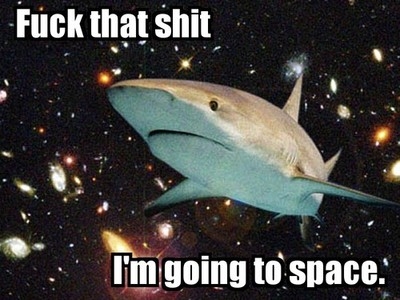
People will tell you that there are all kinds of yardsticks to measure progress.
What they don’t say is that most of them are worthless.
Money, career, fame… whatever. That’s all fine and good, but the bottom line is that there is one thing– just one– that really matters.
Being fucking awesome.
You can be broke and be awesome. You can be in a wheelchair and be awesome. You can be homeless and be awesome. You can even be dead and be awesome.
You want a purpose to your life? I got one for ya.
From this day forth, your purpose is to be the most fucking awesome person you can imagine being.
Quick story: in my early 20s I used to hang out with piercers and tattoo artists a lot. It was the 90s, and a bunch of us were getting crazy parts of their bodies pierced.
One day I walked up to my piercer friend, Azl, who was pretty much covered with tattoos. Incidentally, he’s now an amazing poker player with a huge backpiece of a king of diamonds (with an axe in his head). Epic.
Anyway, I walk up to him one day in the studio and I ask: “What is it like to look down at your arms and know that all these tattoos are yours– that this is what your arms look like?”
Pausing for a moment for dramatic effect, he answered: “Julien, It is fucking awesome,” and smiled widely.
That’s pretty much it right there.
What kind of friends do you want to have?
What kind of job do you want?
What kind of life do you want to have?
The answer to all of these is simple: you want friends, work, and everything else to be awesome. The more your life is awesome, the better everything is, and the happier you are, whoo!
Seriously, being awesome should be a fucking religion.
There are three– count ‘em, three– standards for awesome. Here they are, in no particular order of bigness.
1. Yourself
I was thinking about this yesterday while I was taking a break from exploring this town in Malaysia where I am right now. I sat down and “counted my blessings” or whatever. Here’s some of what I came up with.
- I have an amazing, supportive girlfriend who also happens to be gorgeous.
- I have great friends– the same people I’ve known for close to 20 years, and I meet great new people all the time.
- I co-wrote a bestselling book and am working on another.
- Etc.
If you put this in the context of my 24 year old self, who worked in a call centre, finished at 2am and walked home in the snow, was pretty heavily in debt, and ate nothing but bread and hummus (not kidding), then you realize that pretty much anyone can become more awesome. This means you.
But wait, there’s more! What’s great about the world of awesome is that it’s totally subjective. You don’t have to care about the ways I do it, and I don’t have to like yours. The main judge is yourself, and whether you like yourself more than you did yesterday or last year.
If you do, congratulations! You are becoming, or already are, awesome. But here’s the clincher.
This is only true if you are honest with yourself.
There are a lot of people (people in public relations, or something) who claim that maybe their job is awesome. Or maybe guys that make a lot of money and think that they can be in on this love-fest too. Wrong.
Doing something prestigious does not equal being awesome. In other words, awesome does not look the same close-up as it does from far away. Which brings us to the next point.
2. Your friends/peers
Who are the people that you care about, and that you work with? For me, that’s people like my family, my close friends, my girlfriend, and people I respect in this industry we call the internet.
People who know you are a great judge of whether or not you are awesome, and also, how to become more awesome. But again, only the people who are willing to tell you the truth.
Yesterday, for example, I got a Facebook message from my friend Jason telling me that Snooki, of Jersey Shore fame, is now a New York Times bestselling author. The kind of person that does this is the kind of person you should be counting on; ie, people that keep you grounded.
So one of the litmus tests for whether you are awesome is the people around you who don’t believe the hype. Hey, speaking of hype, enter your email below. Thanks.
Your peers, btw, can see things you definitely can’t, or won’t. You’re too used to yourself– this is why you think you’re handsome and that your beer belly “doesn’t look that bad.” (Neither of which have anything to do with being awesome, but you get my point.) Other people will always see you better than you can see yourself.
Do you have people around you that you can count on? Then I suggest you go ask them. Find the most awesome people you know and ask them how.
Optionally, ask Twitter. Seriously. A first impression is often just as good as someone who’s known you your whole life (speaking of which, don’t ask your mom).
If you speak to a bunch of people, and they all think you’re great, super! You might be awesome. But, then again, it’s possible that you actually have another problem. See below.
3. Your world
Ok, so first of all, your world is as big as you want it to be, so it’s not important what you choose here, with one condition.
If you are already awesome to everyone in your world, then your world needs to get bigger.
You do this by getting out of the little pond and doing new things, or having a positive influence on people outside of your sphere. You ever notice how people who volunteer (if they’re not self-righteous) tend to be fucking awesome?
I’m pretty sure there’s actually a relationship between how many people you help outside of your sphere and how awesome people inside your sphere think you are. Makes sense right?
My friend Nicole, for example, just told me about a friend of hers who helps children get out of the sex industry in Thailand. How awesome is that. And here’s what’s particularly cool about it: if you wanted, you could be them.
Seriously, it’s that easy. You can just decide to become more awesome, whichever way you want, and then look it up on the internet to figure out how. The knowledge automagically makes your world bigger, which makes you more awesome. Then you just go ahead and do that thing, which is easy because you just figured out how. Whoo!
Anyway, what was my point with this? Oh yes. Being awesome is now your new religion. Welcome to the Cult of Awesome. It’s very exclusive, but there are lots of perks.
Your job is now to look out to the wide world, and take a look at what impresses you, at what you find absolutely great, and then find ways to become more like that.
We need more awesome people in this world, and I would like you to be one of them.
Thank you for reading. Please subscribe below.
 Filed by Julien at 7:35 am under direction, humour, taking action, tips
Filed by Julien at 7:35 am under direction, humour, taking action, tips 141 Comments
141 Comments
August 10th, 2010
Life Doesn't Start Tomorrow

There isn’t a single thing in this world that’s made better by starting tomorrow.
Everything you care about, everything you are about, needs to begin today or it may never happen.
If you don’t want to do it now, you clearly don’t want it bad enough.
Momentum comes from pushing, not from planning. Confidence comes from scars and risk, not from indecision.
Q: What is a five-minute action you can take today that will make tomorrow better? I don’t care if it’s cleaning your house or writing one paragraph. You’re going to do it now.
A: Drop everything right now, act on that for five minutes, and then come back and tell me what you did.
I am like your conscience, except I don’t accept bullshit. So I expect you to comment here today, or you clearly aren’t actually reading.
Do it now.
 Filed by Julien at 10:08 pm under challenge, random, taking action
Filed by Julien at 10:08 pm under challenge, random, taking action 138 Comments
138 Comments
February 22nd, 2012
Lessons I Learned Reading Over 200 Books
I recently realized that I’d been reading a book every week now for about 5 years straight.
It kind of made me wonder: what did I really learn? Am I smarter than I used to be?
I started to wonder, and this is what happened. 140 characters per book, for 200 books… 200 things you may not know.
Are you curious? I sure was when I started. Here we go.
A Walk in the Woods
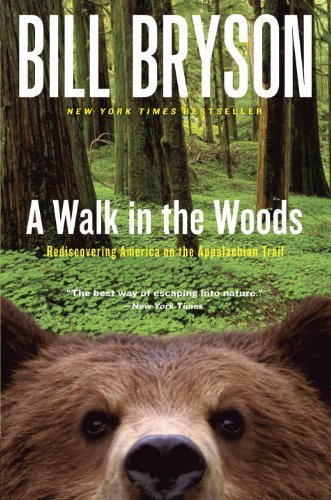
The Appalachian Trail is a trail in the woods that’s over 2000 miles long. In 1990, Bill Irwin became the first guy to ever walk it– BLIND.
The Millionaire Next Door
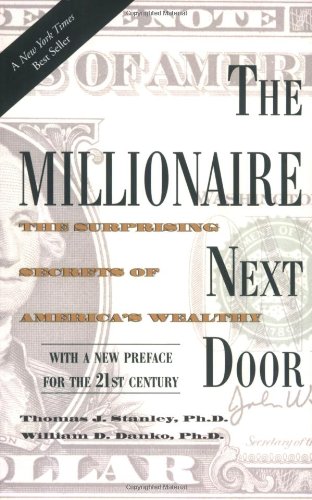
Those that are wealthy are not those who ACT wealthy. Those that look wealthy are usually in just debt, while the rich tend to act broke.
Blink
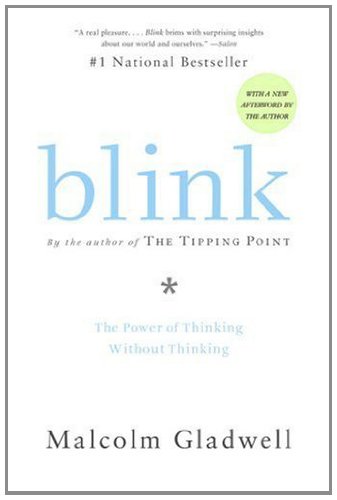
“Sometimes we’re right about things– especially when we’re experts. Other times we’re wrong.” With a bunch of examples.
How To Succeed in Anything by Really Trying
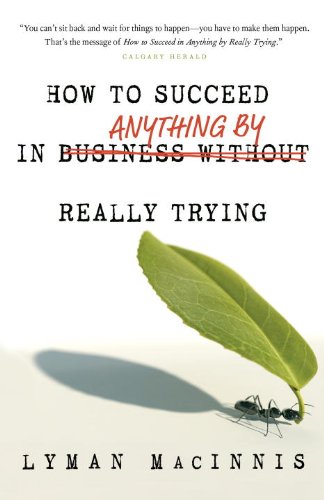
The three A’s of careers are Ability, Ambition, and Attitude. If you have those three down, you’re good.
The No BS Ruthless Management of People and Profits

If your employees suck, nobody is happy. So fire them– fast. Stop being so bleeding-hearted about it.
The Dip
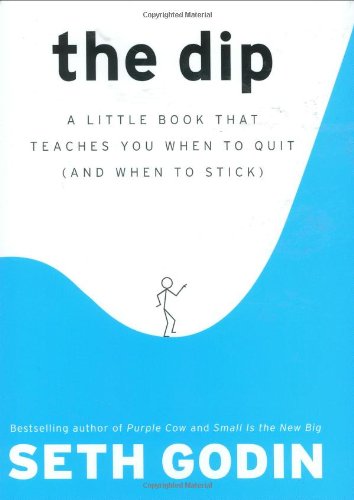
The real rewards come to those who can outlast the competition. If you can do that while staying unique, you win.
The Little Red Book of Sales

People do business with people they like. So if make it easy to be someone they like, you’re a big part of the way there.
Crash Proof
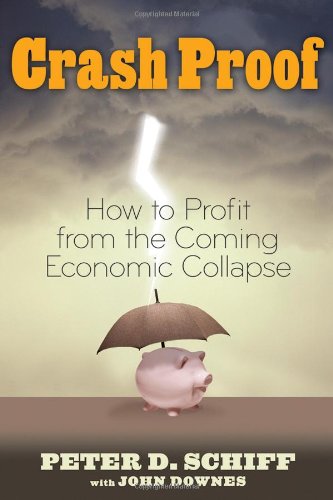
The US is carrying massive amounts of debt. This may or may not reduce the value of the dollar over time, so invest to compensate for it.
On Writing Well
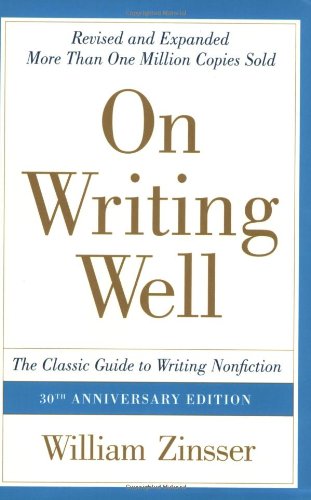
Simplicity matters. Clarity matters. “Writing improves in direct ratio to the number of things we can keep out of it.”
The Little Teal Book of Trust
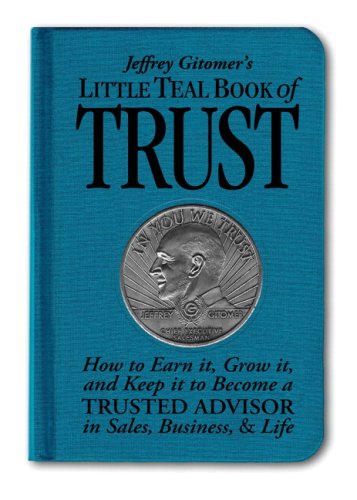
Trust matters, but more importantly, Jeffrey Gitomer is a master salesman, and it is always possible to write a new take on an old subject.
Everything Bad is Good for You
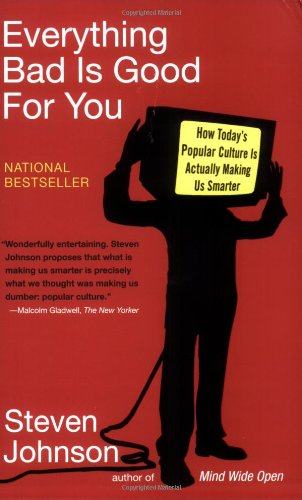
Even culturally “stupid” things like reality TV can have lots of value. In fact media is getting more complex over time. Don’t dismiss it.
The Myth of Multitasking
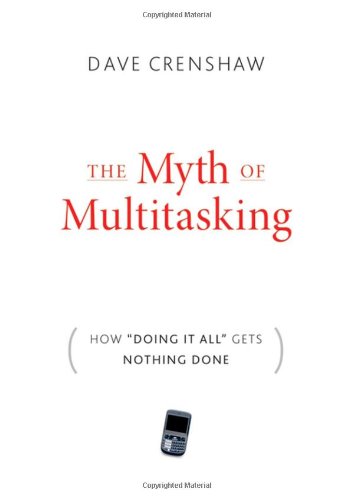
Do one thing at a time or you’re wasting your time. Man, I could still really learn this lesson. So could you.
What Would Google Do?
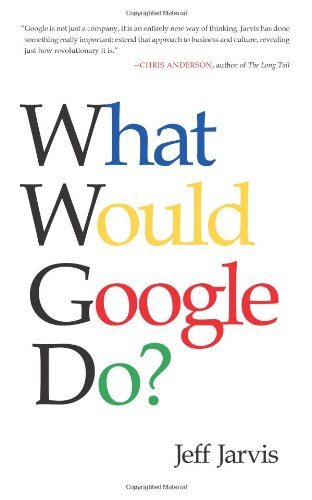
Companies that embrace Google-like qualities win over “closed” companies. Free, open, etc. wins.
Old Masters and Young Geniuses
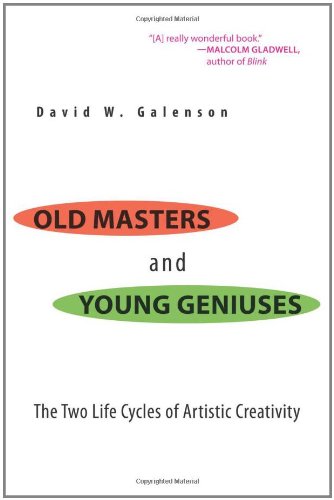
There are two ways to success. Either be young and have a huge insight, or get older and gradually improve.
Pow! Right Between the Eyes
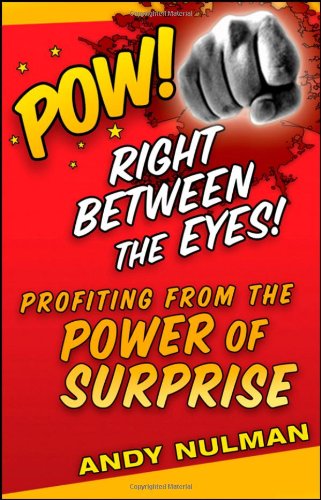
Surprises create emotion. Emotions create memories. Information has nothing to do with convincing someone.
Emergency
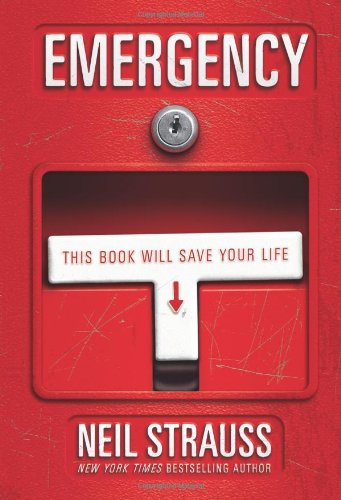
Learn practical skills or you’ll regret it when you need them. Being useful matters.
Lance Armstrong: Every Second Counts
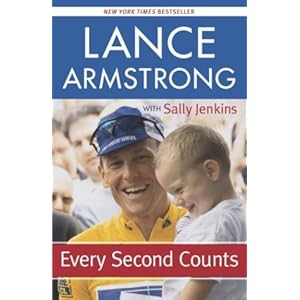
Persistence is everything. Ignore detractors and push forward no matter what.
Problem Solving 101
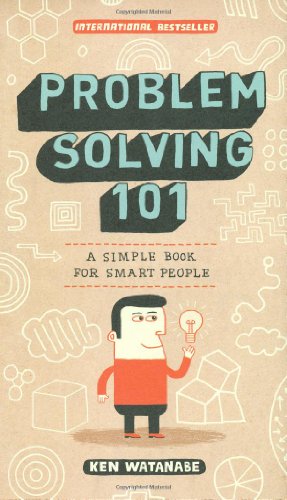
It’s easy to sell a little book to a bored guy in Chicago O’Hare airport… yeah, that’s all I remember.
Talent is Overrated
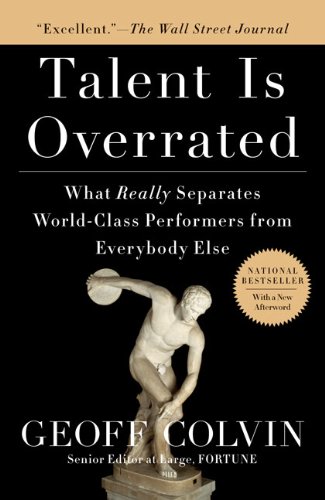
Work matters more than talent– this is like a much better version of Outliers. Focus on the work, always.
Culture Smart:Japan

There are at least 5 ways to talk to people in Japan, based on their status and yours. In America, we’re lucky to have social mobility.
Thank You and OK!
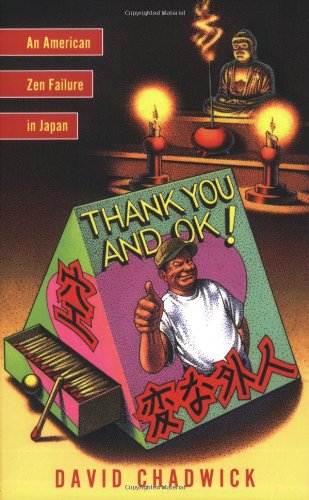
Even Zen Buddhists can be messed up. No single path will make you perfect.
The Way of Zen
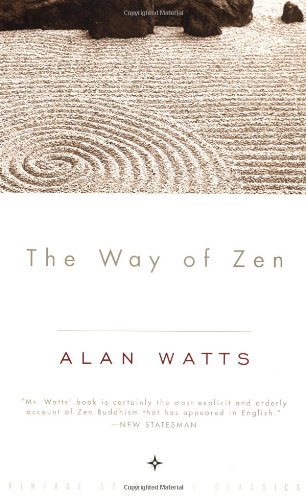
Japanese Daruma dolls are really cool symbols for persistence. Keep real objects around you that remind you of your purpose.
Stumbling on Happiness
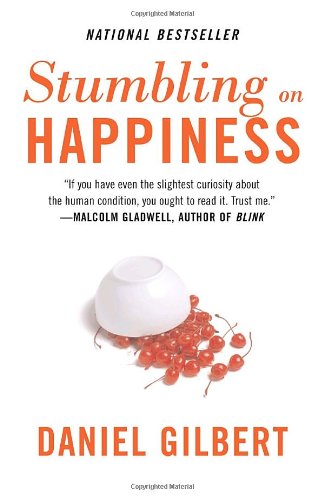
The stuff we think will make us happy usually doesn’t. We need to be clear on what those mistakes are or we waste a lot of time.
Not Always So
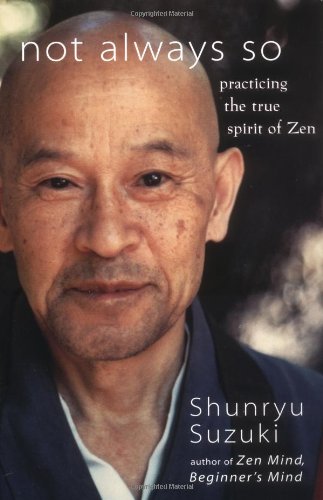
Enlightenment is about the practice, not the talking. You can’t intellectualize insight.
Walden

Simplify your life and you’ll appreciate what you have more. Yes, it’s that simple.
The Five Secrets You Must Discover Before You Die
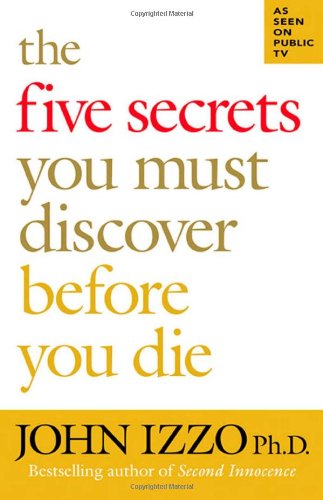
Most of the answers to happiness have been figured out by old people. Ask them, they’ll tell you.
Nudge

Simple environmental changes can radically alter behaviour. It’s how change happens. So don’t blame yourself or your weaknesses.
The Game
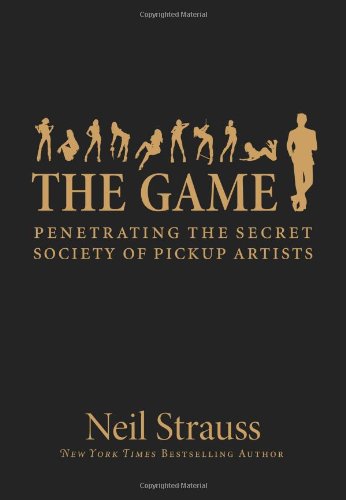
Girls like confidence, and confidence is hard to fake.
How To Sell
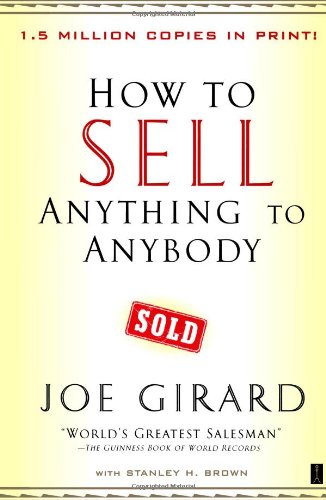
Girls apparently like jewelry too. But not as much as confidence.
Six Pixels of Separation
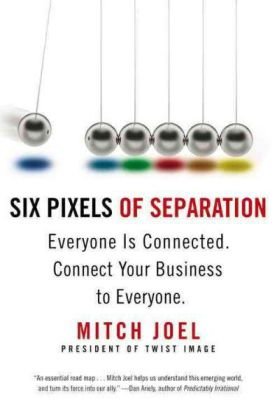
Mitch Joel is an under-appreciated asset to the whole social media community. This book has secretly outsold every single other social media book out there, by the way.
What I Wish I Knew When I Was 20
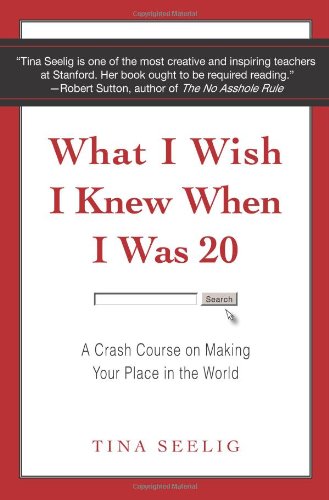
Frankly, this was not memorable. If you are reading a book and can’t come up with any significant quotes or ideas from it, you should probably stop. Trust me.
Mastering Your Hidden Self
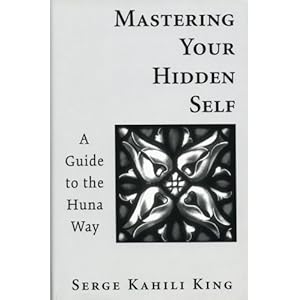
Do yourself a favour and don’t read books about spirituality. They’re usually crap and are trying to sell you on something.
Man’s Search For Meaning
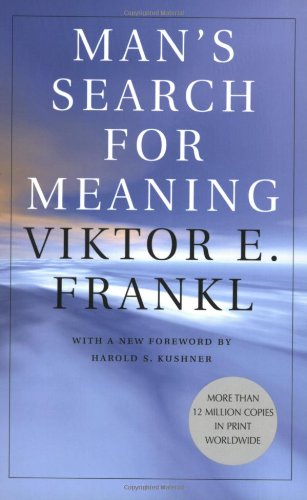
Between stimulus and response there is a space, and in that space lies our growth and our freedom. (This was the largest inspiration for my book The Flinch.)
Feel the Fear… And Do It Anyway
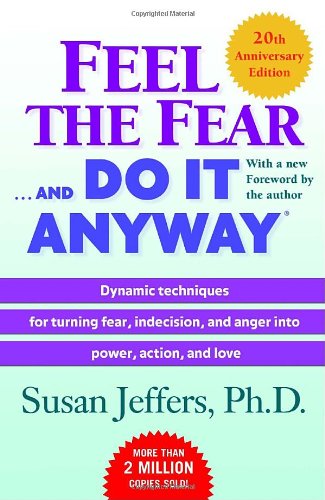
If you feel fear in non-dangerous situations, you should just go forward anyway. It’s rare that bad shit happens.
Blue Ocean Strategy
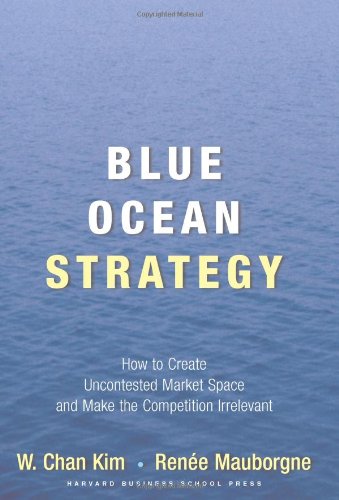
Low competition means it’s easier to win. Always search for the easiest, least competitive way.
What Should I Do With My Life?
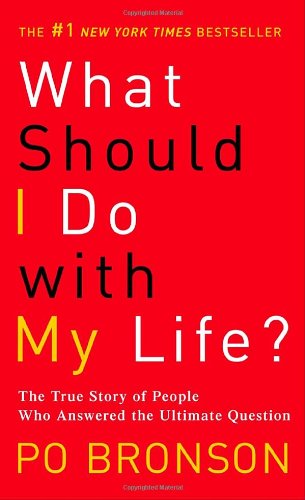
Follow your passion or you’ll regret it. Speaking from experience, this is true.
Enough
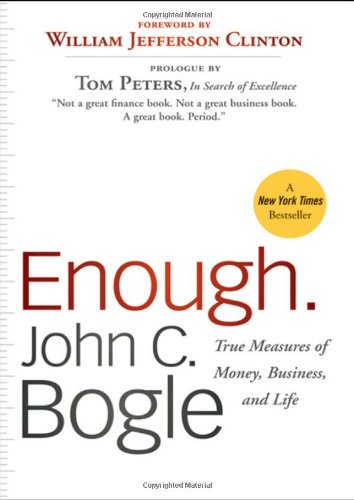
Stuff doesn’t make you happy, but you’ll never stop thinking it will.
She Comes First
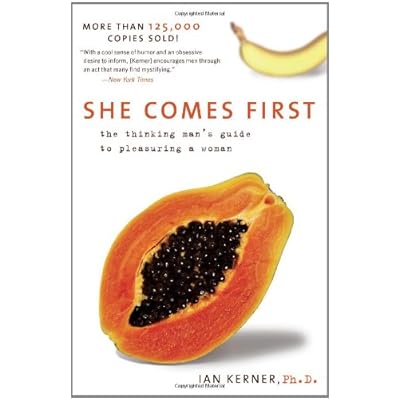
Lol. I can’t believe I’m admitting that I read this. It was good though. You should read it.
Purple Cow
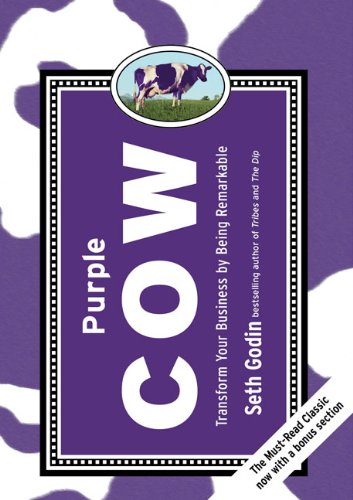
Being remarkable means your customers will notice, and being noticed is the first step on the way to being successful.
50 50

Doing the impossible is often easier than you think. Most people don’t try to find the real limits– they just trust what others say.
Presentation Zen
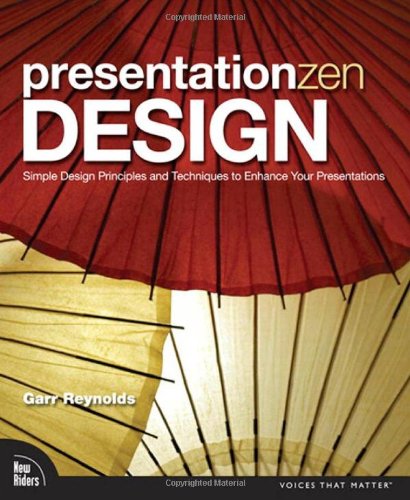
Stop putting walls of text on your Powerpoint slides. Everyone knows this now, don’t they?
Getting Things Done

Having a system in place is necessary to facilitate completing lots of tasks. Otherwise, you get lost. But if it’s too complex, the system itself gets you lost.
Open and Shut
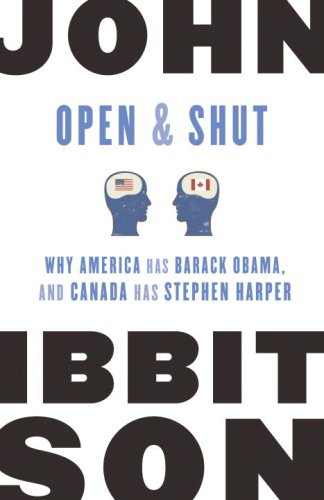
The Canadian government never would have let Obama win, or even run, because he’s an outsider. This stifles innovation from the Canadian system.
Rules of Thumb

Any lesson is easy to learn… but applying it is hard.
When I Say No, I Feel Guilty
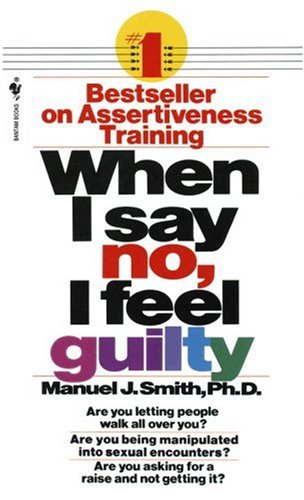
Saying no to something is actually very hard, so learn social “techniques” to help you say no when it matters.
Crush It

Fact: It’s possible to talk into a microphone and have it be made into a bestselling book.
Status Anxiety
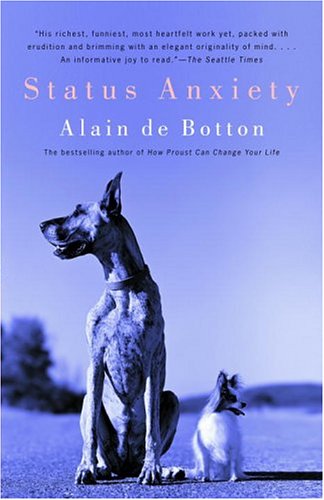
It’s programmed into our brains to seek higher status, and when we can’t do it, we feel like crap.
The Architecture of Happiness
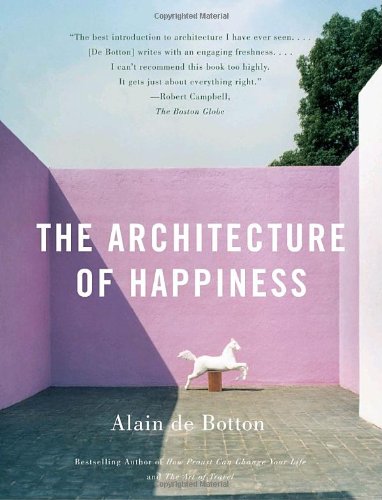
Our physical environment is important. How we feel in a place influences our behaviour in it, so try to create a space you love.
Connected
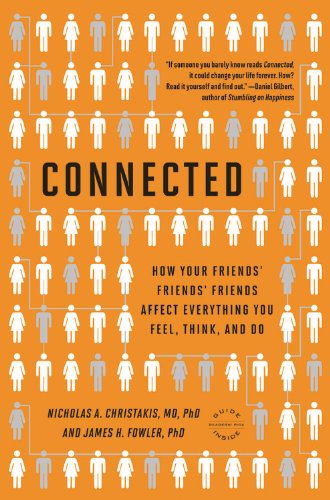
Even if people are outside your social network, you influence them. In other words, humans aren’t like wolves, we’re like bees.
The Cluetrain Manifesto
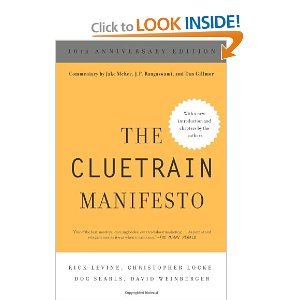
Hyperlinks subvert hierarchies. (This sounds simple but it’s in fact very profound.)
Gambling Scams
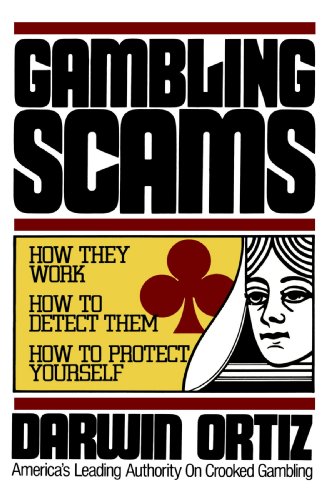
Amazing book. Crazy stories. Most scams are about getting the mark to feel like they’re getting away with something, not the other way around.
Zen and the Art of Archery
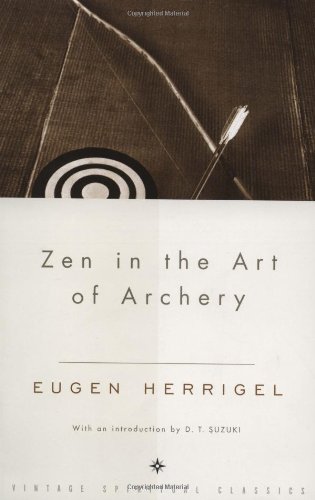
Reading short books helps you get ahead on your reading list. Don’t underestimate this. :)
The Numerati

The world of the future will be controlled by those who have, and understand, the numbers. Intuition is no longer good enough.
Vagabonding
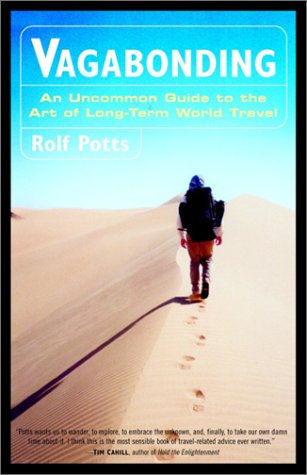
Traveling full-time is easier than expected. You, yes you, could probably do it… just not as you are now.
Hagakure

If you have trouble with a book, persevere anyway. It’s worth it.
Your Money or Your Life
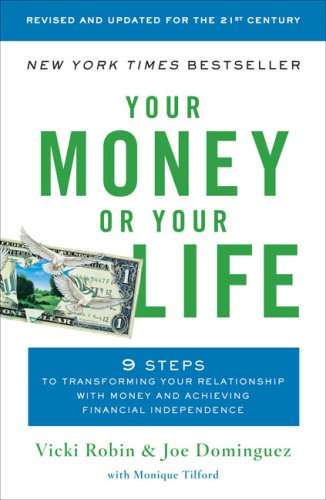
Your spending habits are changeable. Stop letting them direct your life. What seems “essential” usually isn’t.
Of the Dawn of Freedom
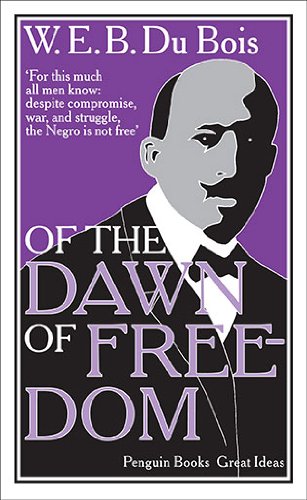
Black people had it really bad, you guys. We are all lucky to be alive when we are right now.
Drive
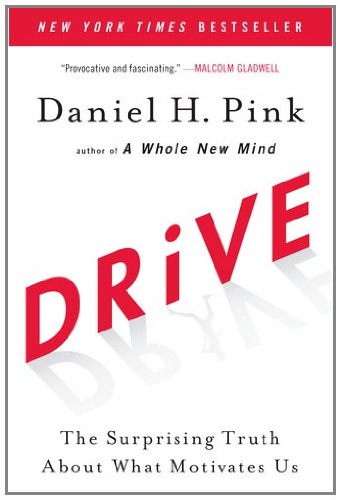
Motivation from inside gets you moving. Motivation from outside stops you dead cold.
The Social Contract

There are implicit and explicit “contracts” that occur between people all the time, without people even talking about them.
Shop Class as Soulcraft
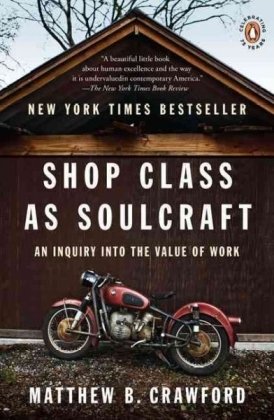
Working on things (vs, say, ideas) is rewarding, because you can see the results of your work and how it improves the world.
Escape From Cubicle Nation
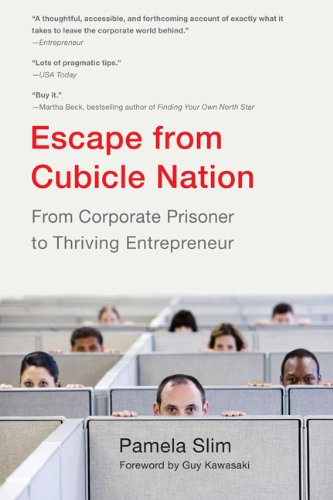
Quit your horrible job. ASAP. Trust me.
The Pleasures and Sorrows of Work
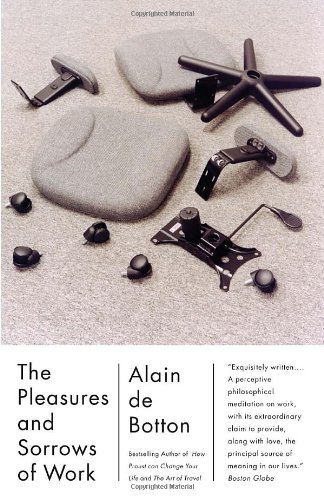
Unfortunately, all work sucks at least a little. But life is still good, so don’t worry about it too much.
The Meditations of Marcus Aurelius

Amazing things will happen, and terrible things will happen. Deal with both in the same way.
The Paleo Diet
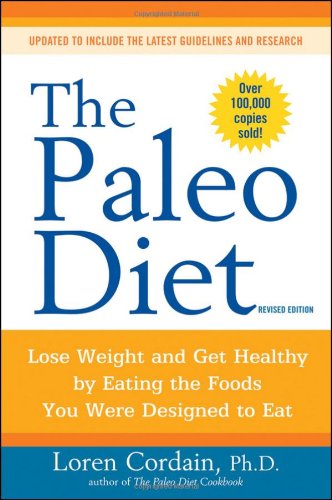
Removing sugar and grains from your diet is one of the best things you can do for your health.
7 Days in the Art World
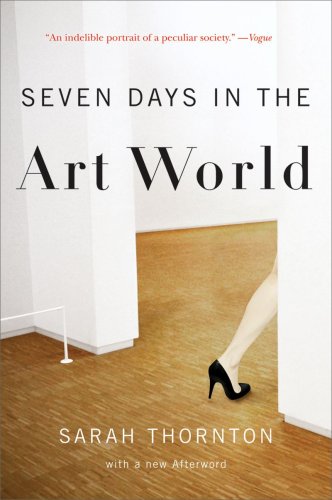
Art is all about personalities and technique is no longer that important. Often, big artists don’t even make their own work anymore.
Switch
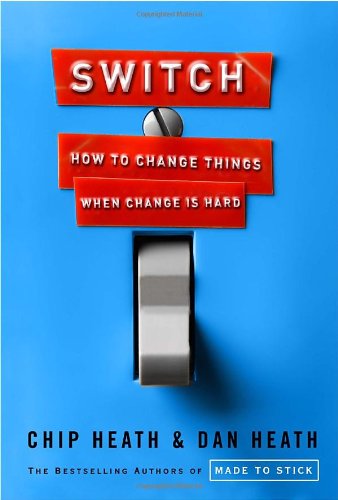
Change is about working with three things: intellect, emotion, and environment. Get all three and change is easy.
Linchpin

I read this while in Cuba. This is the book I wish I had written. I was both impressed and upset when I read it because it was what I had wanted to do.
Simplicity

Simplicity is often harder than complexity, and often, there’s a lot of garbage that can just remain unsaid.
The Art of Eating In
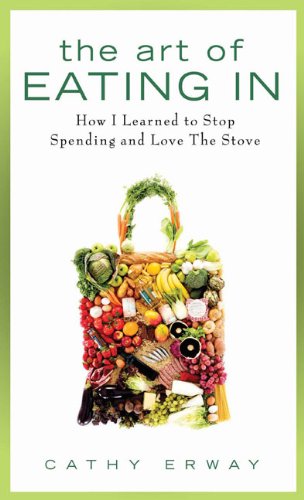
If you’re doing it right, food in the house can be just as great as eating at restaurants. Take time to work on your cooking skills.
The Fighter’s Mind
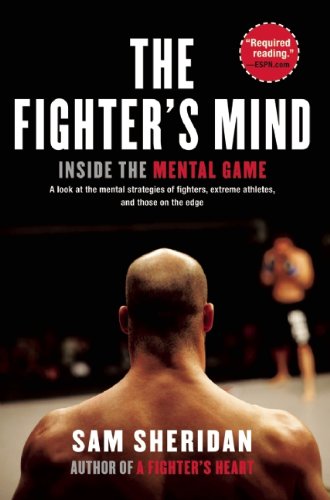
People that fight intimately understand something that we do not.
The Greatest Salesman in the World
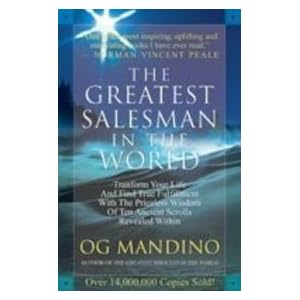
Mindset is everything.
The Creative Habit
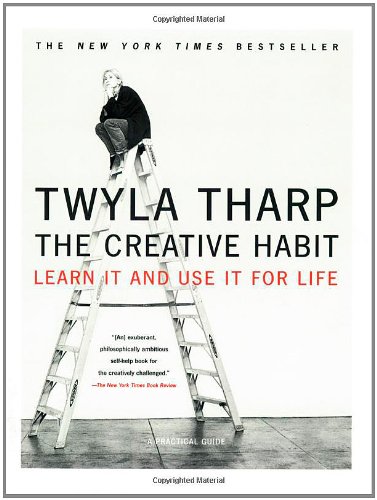
One of the world’s most famous choreographers gets in a cab every morning to bring her to the gym to make sure she works out. In other words, high achievers have more than just “willpower” to make it happen.
Rework
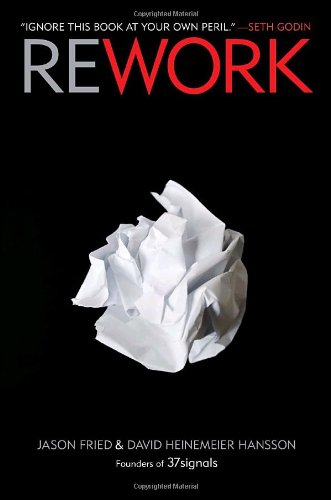
Books that say a little are often way better than books that say a lot.
Do More Great Work
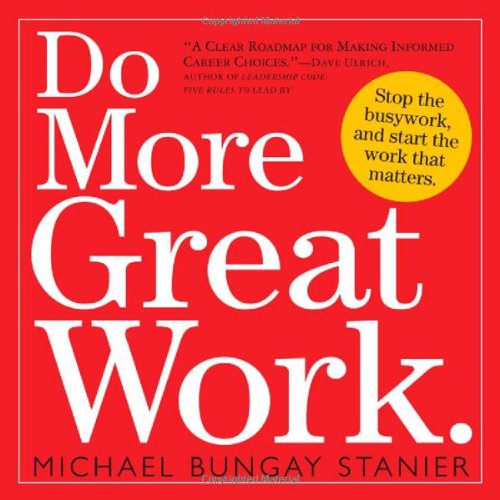
Getting people to do exercises makes them think about things more than if they just read about them.
Stranger in a Strange Land
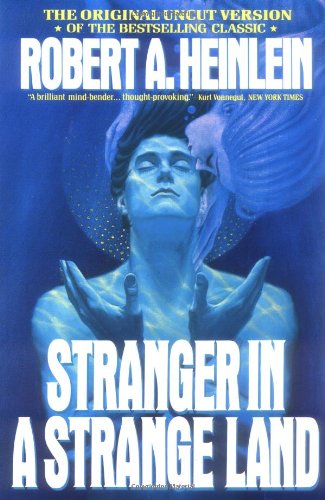
Starting a cult is easy. :)
A Million Miles in a Thousand Years
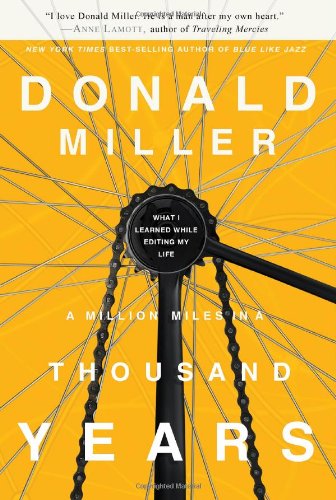
Think about your life as a story. How would you make it worth watching? Also, a character is what a character does. This is very important.
Zen Wrapped in Karma Dipped in Chocolate

Zen Masters are just normal people that sit around a lot. They aren’t saints. I spent a month in a Zen monastery in Japan, so I know this is true.
Global Citizens
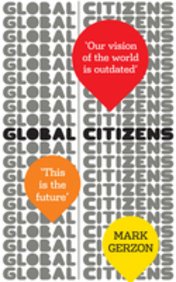
Don’t downgrade your standards for books just because you’re getting on a plane in New Zealand. Just garbage.
Ogilvy on Advertising
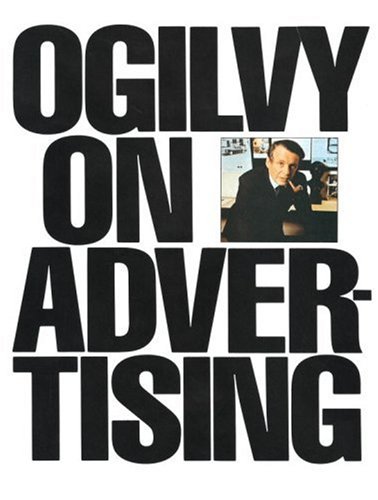
People used to be very gullible I think. A wall of text used to convince people… wait, maybe it still does?
Tao Te Ching

This book made me appreciate Chinese writing. The fashionable thing is to like the Japanese, but honestly I think ancient Chinese philosophical writing is far superior.
Louis Riel: A Comic-Strip Biography

History will distort what your message is, or it will forget you. Focus on making the people near you happy instead of your “legacy” or whatever.
All Marketers Are Liars
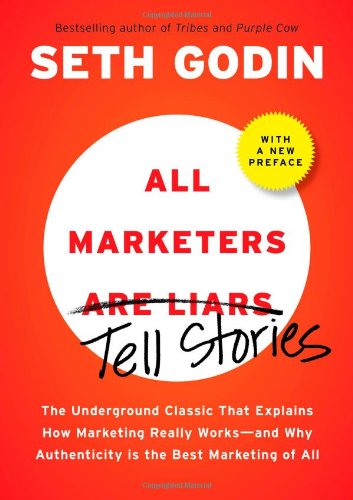
The story you tell yourself (and others) is really important.
In Defence of Food
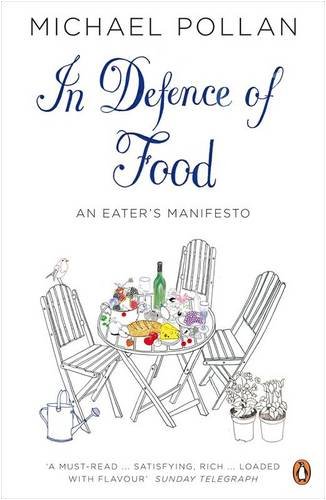
If it doesn’t need to be refrigerated, it may not actually be food. So never go through the aisles of a grocery store– go around the edges instead, where the fridges are.
I Am Not a Gadget
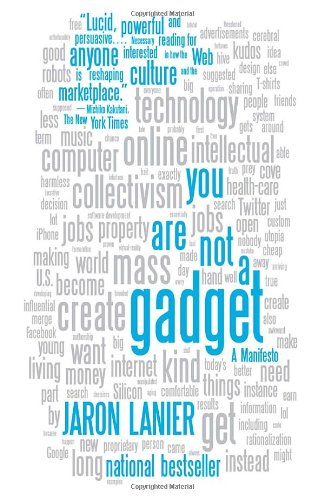
The web is making you into a commodity and narrowing your thinking without you knowing it.
5 Love Languages
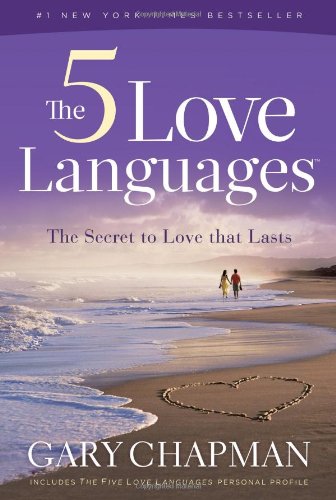
Behind the things your spouse does is a way of thinking. Aligning yourself with that will help you understand them.
The Vegetarian Myth
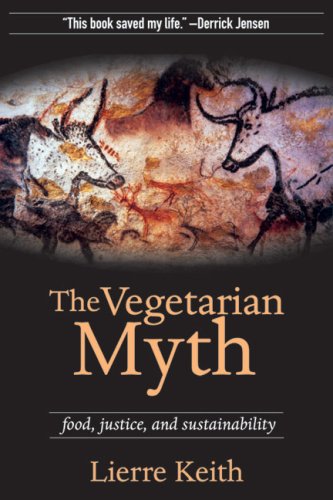
I was a vegetarian/vegan for 10 years and there were lots of talking points I believed without researching them. So the lesson here is, read up on sound bites before repeating them.
The Professor, the Banker, and the Suicide King
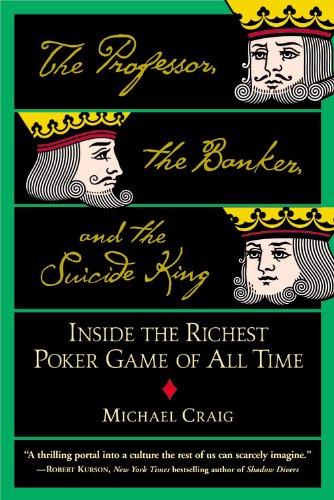
Big bets either pay off or wipe you out. But even if they wipe you out, you can still come back from it.
A Brief History of Everything
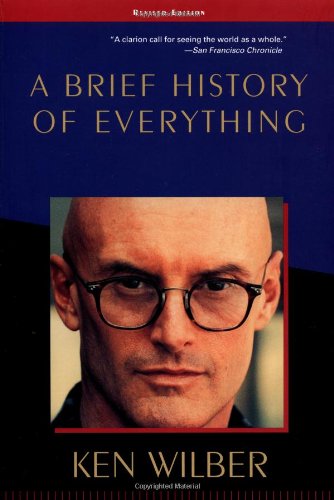
Systems look very different from the inside than they do from the outside.
The Gift of Fear
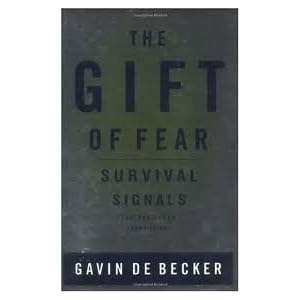
Your instincts have been honed by millions of years of evolution. When your intuition tells you something, don’t ignore it.
Three Steps of the Ladder of Writing

In order for great art to emerge, you must suffer. (I have also experienced this firsthand.)
Se liberer du connu

Any habit, no matter how stupid, will end up with religious significance if unquestioned.
The Primal Blueprint
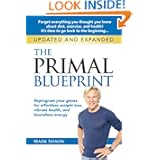
One book on the paleo diet is enough. Stop re-reading the same information over and over again. (This also applies to social media books.)
Sixty Million Frenchmen Can’t Be Wrong
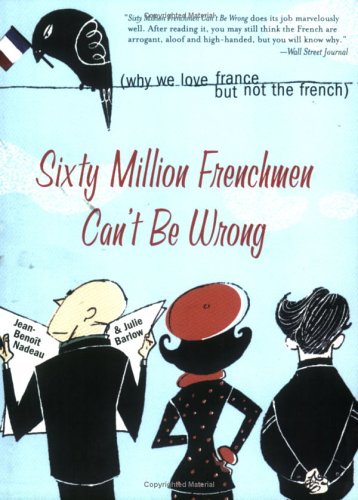
The French are best appreciated as a deeply distinct culture. They may have cars, McDonald’s, and shopping malls but they are not like you.
The Art of Non-Conformity

I could learn a lot from Chris Guillebeau. You can too.
UnMarketing
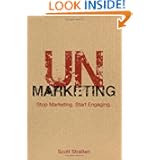
When things go viral, it’s because they touch upon emotion, not logic. This is actually a big message most web people forget.
The Happiness Project

It’s shocking how much this book has sold. I guess it goes to show what happens when you put “happiness” in the title. It’s good, but…
The Little Black Book of Connections
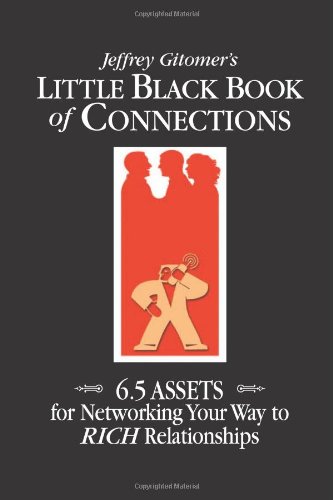
Your network is everything. Access to the right people accelerates everything you do.
The Paleo Solution
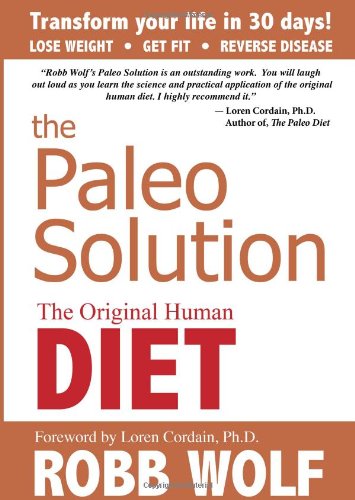
Another paleo book may not have been the right thing to do, but it does prove that presentation matters. This book is the best presented of all the ones I read.
Hamlet’s Blackberry
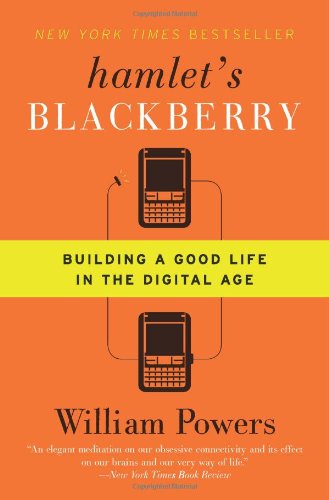
People have encountered new technology many times before, so looking to the past can help you understand how you should deal with it when it happens to you.
The End of Food
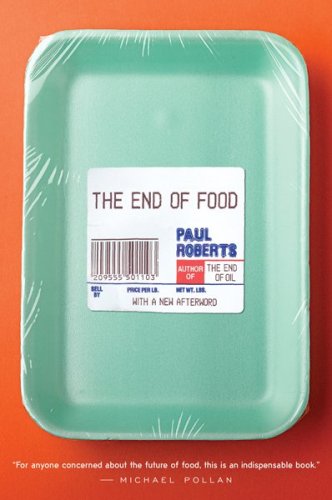
Unless it’s local and needs to be refrigerated, the food you eat had a terrifying ride to get to your plate.
Tactics
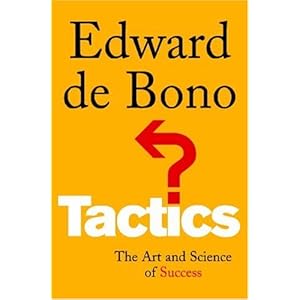
I think I’ve read enough Edward de Bono books. This was about success, but whatever. Why do I keep reading about the same things?
Maus
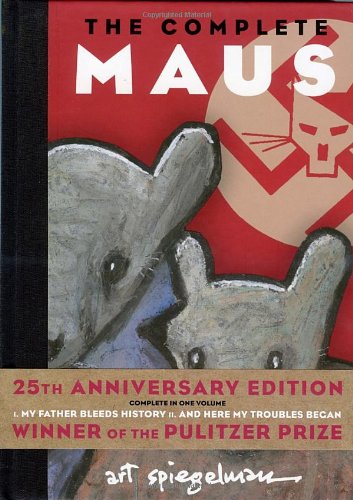
Old people have tons of amazing stories– but most of us don’t know them because we just don’t ask.
It’s Not Just Who You Know…
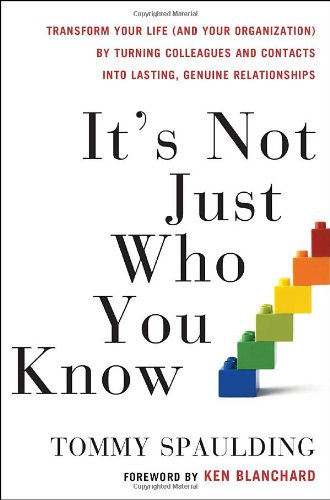
Pull other people up. Be considerate to everyone.
Good Calories Bad Calories
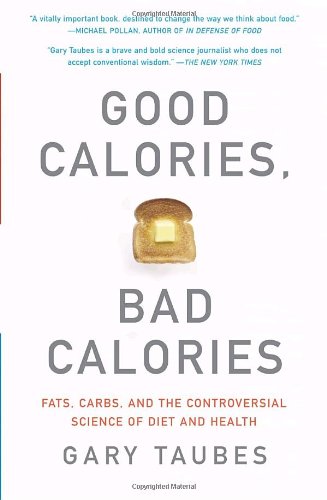
Native people all over the world, before being introduced to Western food, had significantly less chronic disease.
Making Ideas Happen
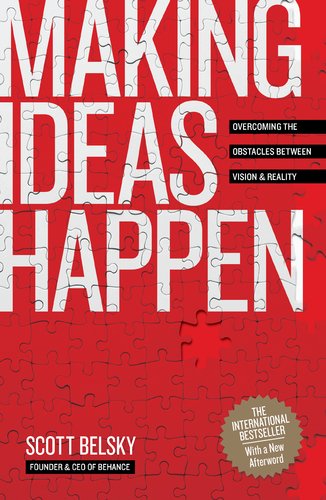
The productivity system you use must be available everywhere and give you your tasks only for today, not for next week.
Work the System
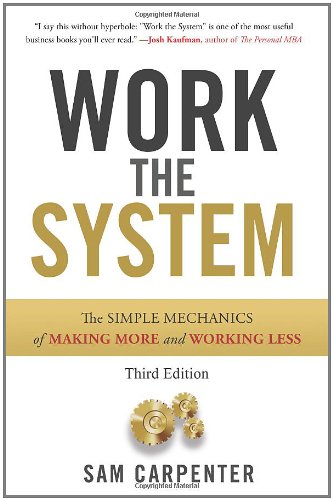
You should not be working inside your company putting out fires. You should be improving its efficiency instead. This book is like a better 4-Hour-Workweek.
Food Rules

When you name something a “rule,” everyone believes it even though it may not be true.
Foucault for Beginners

Michel Foucault was gay and came up with the panopticon.
A Treatise on Elegant Living

What you wear isn’t just surface– it also displays your personality and what matters to you.
Why We Get Fat
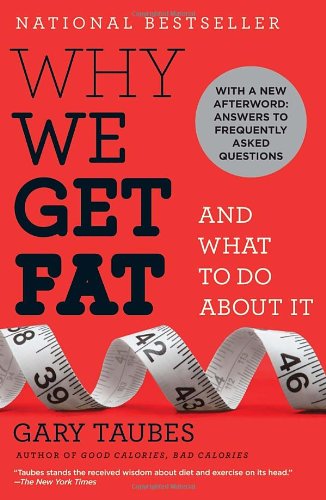
Science writers usually write a complicated book, and then a simple one after that. Always read one or the other. Never both.
The 4-Hour Body
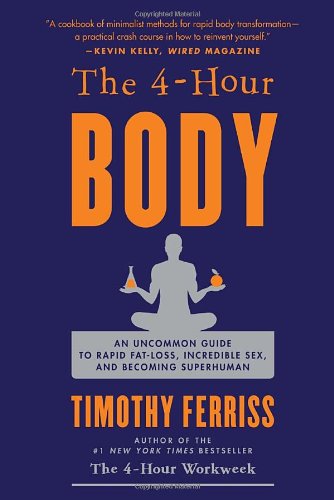
Do the minimum possible to affect the largest possible change. Everything else is wasted energy (unless you want to master a discipline).
Emotional Intelligence 2.0
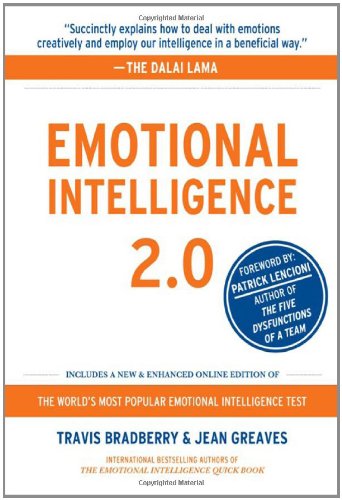
I was in Thailand while reading this. Skip it and go to Thailand instead.
What Technology Wants

Technology is a force and it’s going in a certain direction. If you work on the web, you need to understand what direction that is.
How I Became a Famous Novelist
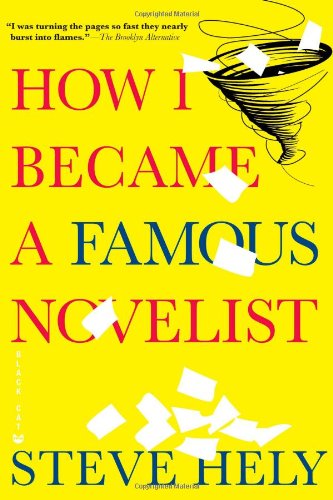
Thailand again… this was the funniest book I ever read. It made me want to write other things than business books for the first time.
One Small Step Can Change Your Life
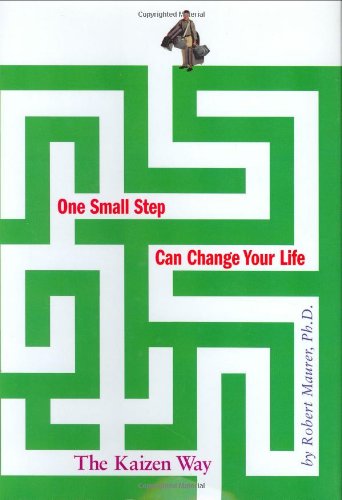
Large change is best done in small steps, because it doesn’t set off your emotional alarm system.
The Alchemist

Have a quest.
Program or Be Programmed
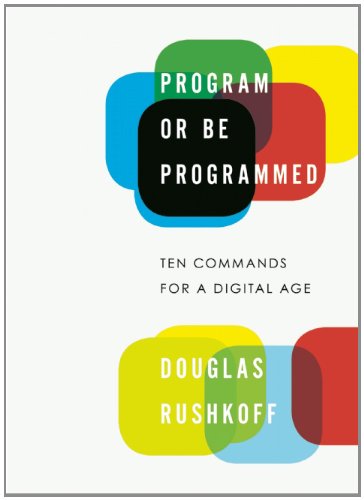
Most people on the web are writers, not programmers, and in so doing, they are less powerful than they could be.
As You Think (and other short books)

Writing down goals has power.
Poke the Box
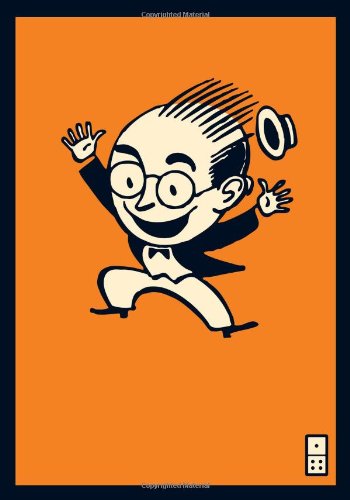
Become a person that initiates. Others will follow.
What the Psychic Said to the Pilgrim
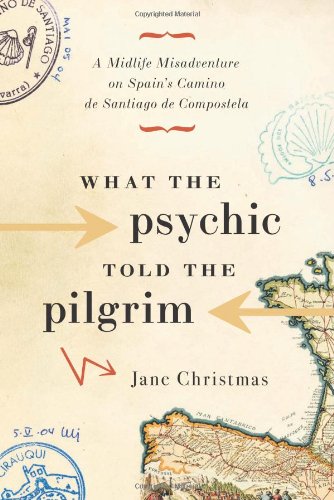
People give up extremely easily. If you don’t, you automatically win.
The Thank You Economy
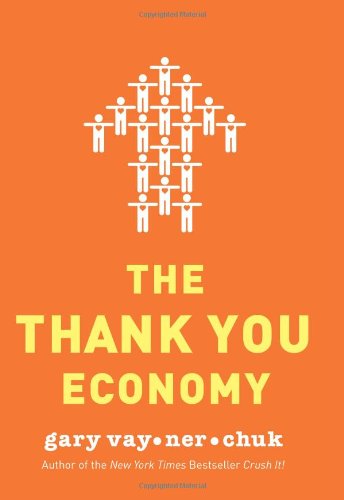
Social media is all about basic human interactions, so being as human as possible means you have the most impact.
The Long Walk

All Stephen King books are about a regular thing that becomes evil. Carrie is a high school girl that becomes evil. Christine is a car that becomes evil. Cujo is a dog that becomes evil. The Long Walk is about a walk that becomes evil.
How to Get a Grip
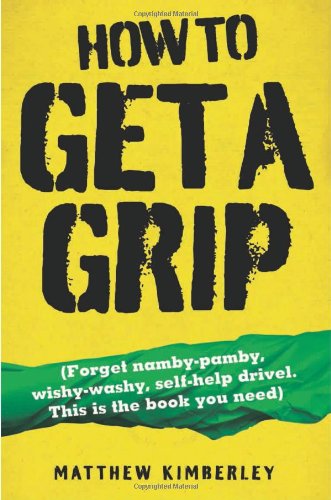
Most self-improvement is in fact very basic to do. Stop kidding yourself.
Do the Work

Just sit on your ass and do it. It’s that “easy.”
Go Forth and Kick Some Ass

eBooks are quick to read and people will probably buy lots of them.
Against the Gods
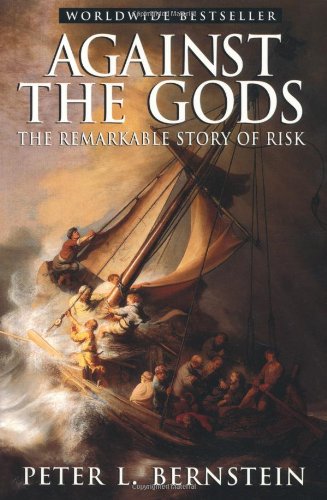
Insurance companies (and others) understand risk in an extremely sophisticated way– but most individuals do not. They consider risky things safe, and safe things risky.
The God Delusion

Richard Dawkins is not nearly as much of an asshole as some think he is.
Five Little Pigs
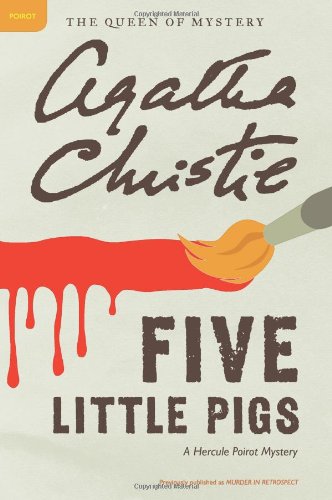
Agatha Christie is the greatest fiction writer in the history of mankind. She is a master.
Rules for Aging
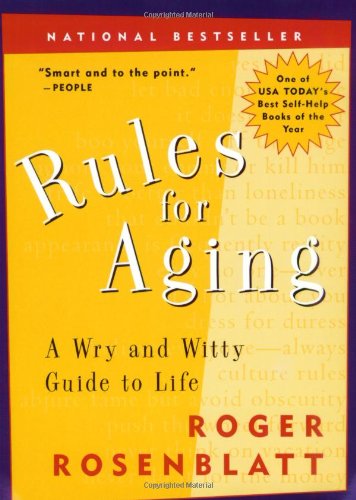
Amazing short book about important life lessons. Very funny.
The Places That Scare You

“Drop the storyline.”
Born Standing Up
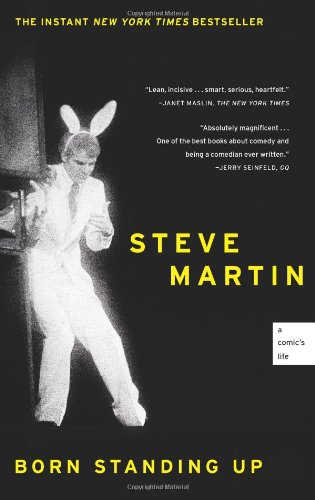
Even if their movies are bad, celebrities usually aren’t idiots… especially the comedians. Also: read more biographies.
Born to Run
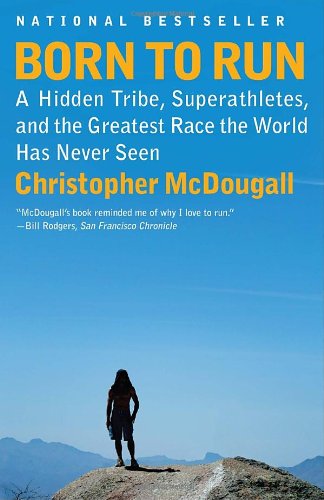
Marketing, especially when applied to things we have been doing for millions of years, can really screw things up. People with expensive shoes, for example, get more injuries than minimalist shoe runners.
The Dip

Wow, I read this twice! Well, this one was an audiobook, so I guess that’s different. Kind of like being on the Camino de Santiago with Seth Godin.
How to Win Friends and Influence People
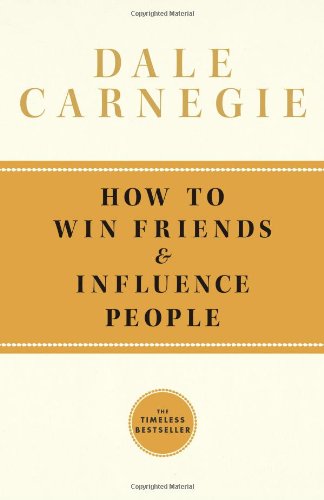
After finishing this book, I realized that I should be reading it every single year. It’s that good.
A Whole New Mind
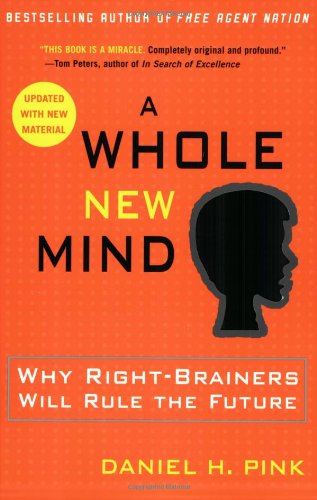
The mind necessary in the 21st century is not like the one we were taught to use. We need to learn to think and learn differently.
Getting Unstuck

Godin also recommended I read some Pema Chodron. He was right.
The War of Art
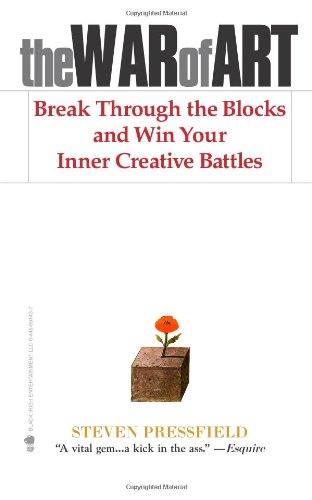
This is the perfect writing book. It’s so good it makes you never want to compete with it.
The Thing About Life is That One Day You’ll Be Dead
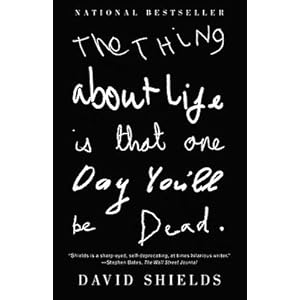
Sickness and aging happen very slowly, so you never actually notice it happening. Plan accordingly.
Your Dog is Your Mirror
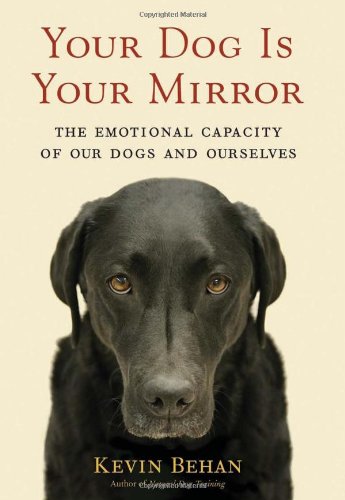
Bad dogs aren’t bad for no reason. They have been with us for longer than any other animals, so they are uniquely attuned to our emotional states.
The Consolations of Philosophy
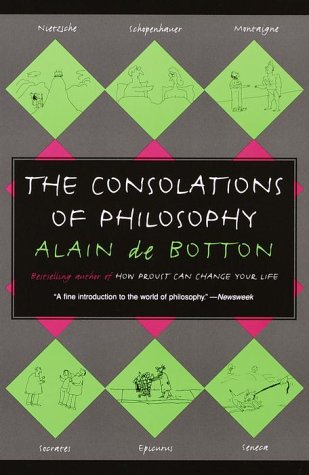
Most of our basic human problems have been solved a long time ago. If you start digging, you can solve them pretty easily.
When Things Fall Apart

Even though pain may seem catastrophic, it’s actually temporary. And again, “drop the storyline.”
Evil Plans
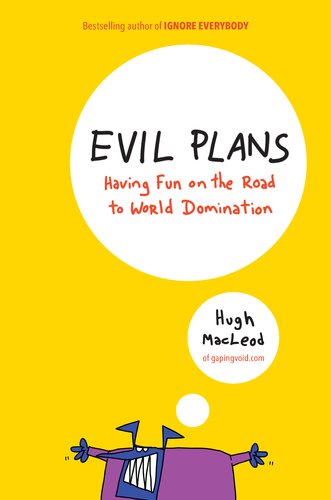
When you draw, you can say a lot with a little. I plan on drawing a lot of my work in 2012 and beyond.
Uncertainty
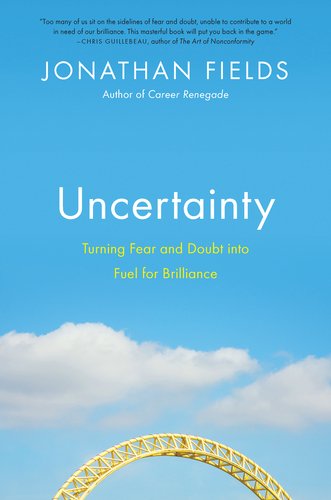
I read this because I was asked to blurb it, but it was actually a good primer.
Read This Before Our Next Meeting
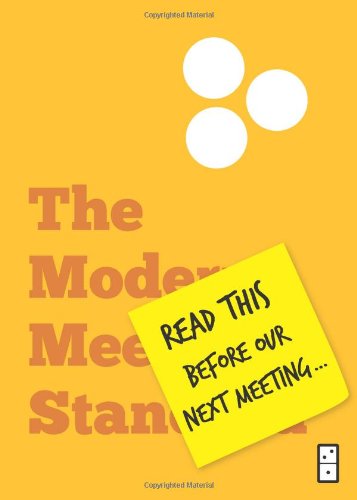
Most time in offices is wasted. I heard the other day most people actually “work” around 2 hours per day. Meetings are partly responsible.
Purple Cow

When I read this for the second time, it was because I was trying to “distill” the Flinch. It worked.
Self-Reliance (Domino edition)

Always read the original.
The Power of Myth
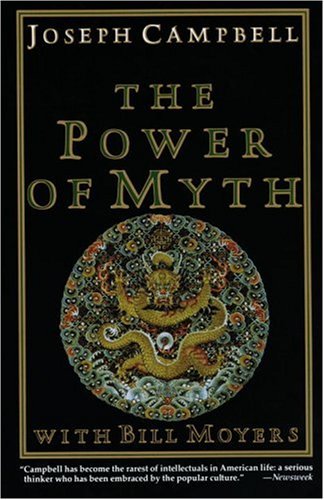
Joseph Campbell, although not “undiscovered,” is still under-appreciated. The dude did things his own way in a time when conformity was the norm.
The 22 Laws of Marketing
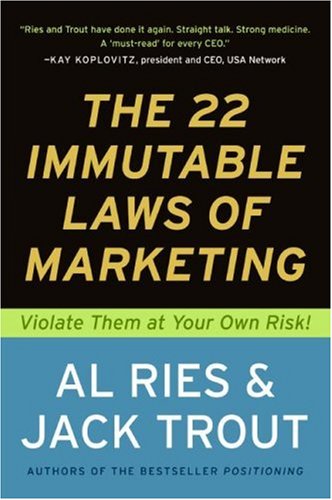
Tim Ferriss was right. This book is simple yet awesome.
Zarrella’s Hierarchy of Contagiousness

People who give you simple formulas are spoon-feeding you. Be skeptical.
L’art de la sieste

Some books are inappropriately titled. I thought this book was about napping, but it isn’t. It’s about people napping in paintings. No kidding.
End Malaria

The most easily marketed work is the one that is publicized collaboratively. In order to facilitate this, you should also write collaboratively. (See Godin’s What Matters Now for another example.)
The Pilgrimage

Universal themes in books never get old, and Paulo Coelho is a master. As he visited each town, I remembered how I felt while visiting them.
The Warrior Ethos

Throughout history, there have been cultures that have been hard, and others that have been soft. We are soft. The Spartans were hard.
5 Minds For the Future

The most appreciated people in the 21st century will be those who do the jobs that computers are bad at.
We Are All Weird

Find a little tribe that is like you, be yourself to them. Build yourself a business around it. (See also: 1000 True Fans.)
Accidental Genius
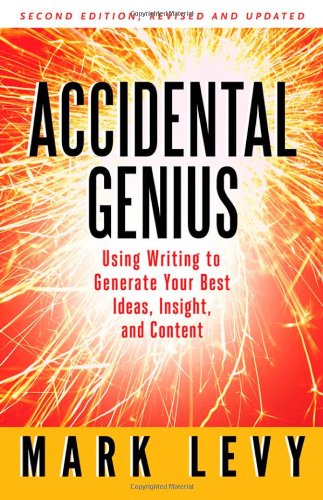
Freewriting unlocks ideas that your brain may never have otherwise encountered. Read this and try it for yourself.
Rum Socialism

I should go to Cuba again. You should too, probably. It’s going to change a lot soon. Foreigners just got the right to buy property there.
Falling While Sitting Down

You can radically change your writing and still keep a lot of your audience.
The Game Master

Yes, I still play Dungeons and Dragons. Yet there is little writing about how to write a game. This was a good one. You can download it here for a donation or for free.
Cognitive Surplus
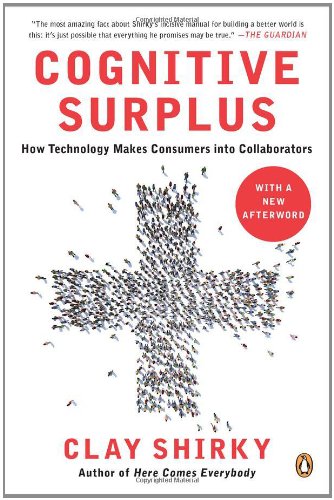
When you free up a lot of your time, or give yourself many more options than before, your creativity and that of society is entirely transformed. Kickstarter and Sokap are great examples.
Willpower

Each fact in a book should be considered separetely. For example, Willpower says glucose depletion is a primary cause of making bad decisions. Not sure about that.
The Education of Millionaires
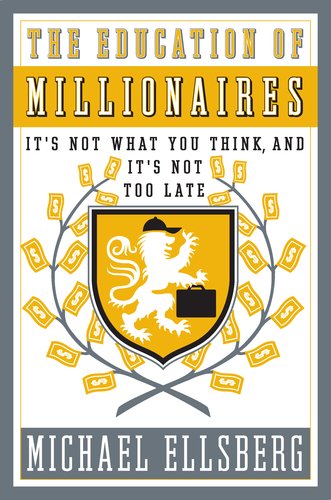
I should be going to more events. Summit Series, for example.
The Lean Startup

There is a methodology behind exploration of new concepts. Don’t just do it chaotically– have a method behind the madness.
Spark

Get advice from people who have been there before. Don’t reinvent the wheel.
Sway
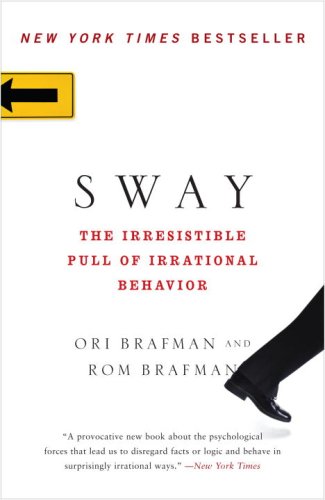
This is a kind of Gladwell-style book, but much more interesting. I also learned here that there are about a million books about psychological errors that people make.
The Power of Eye Contact
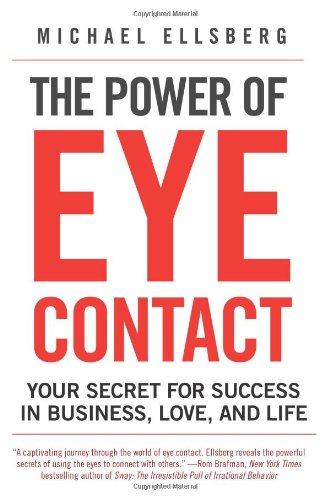
It literally took me a year to finish this. I started in January and finished in December. Anyway, eye contact is important for relationships.
Never Eat Alone
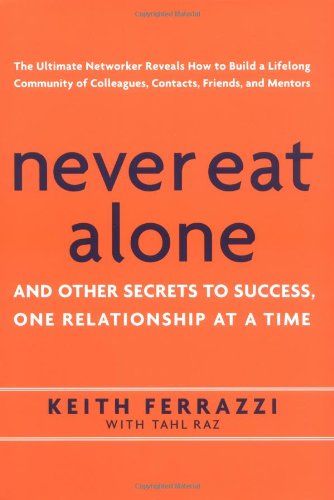
You are not networking as much as you should be.
Strong Enough?
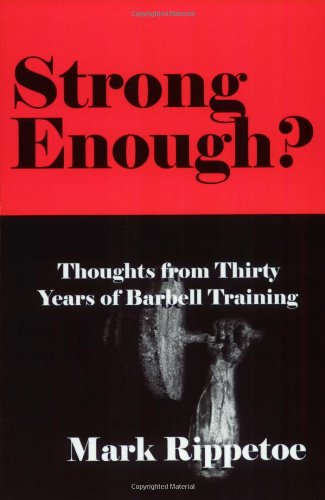
Incremental change can make you amazingly strong. (This applies to all areas of life.)
Think Twice
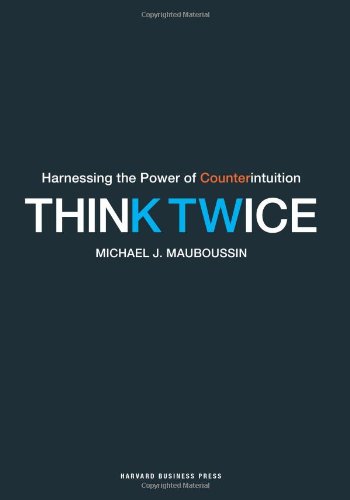
We make cognitive errors all the time without knowing it. Correcting them usually means big rewards.
How To Be a Man
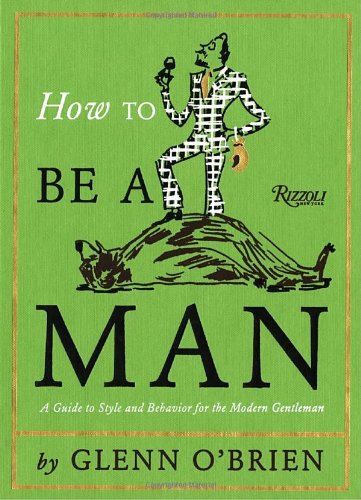
In an anarchist state, manners would become the main substitute for laws. So be polite.
What I Talk About When I Talk About Running
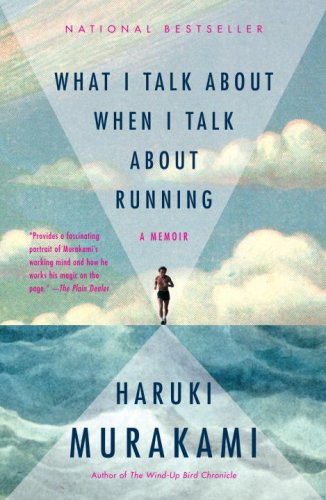
Many famous and well-respected writers have copied, or translated, other people’s works. See also: Hunter S. Thompson.
18 Minutes
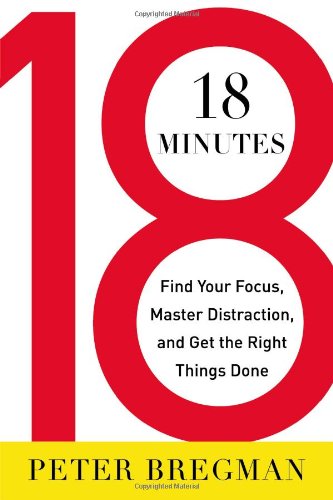
Set your phone to ask you once an hour whether you’re being productive. Watch massive change occur.
Grouped
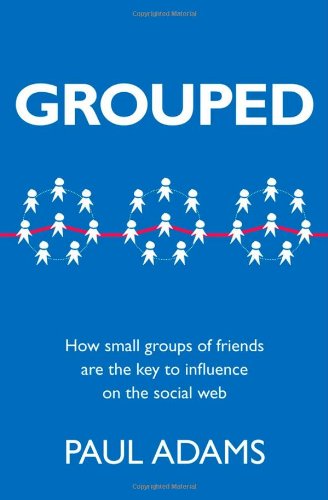
Influence on the web comes from working with regular people, not “influencers.”
Spent
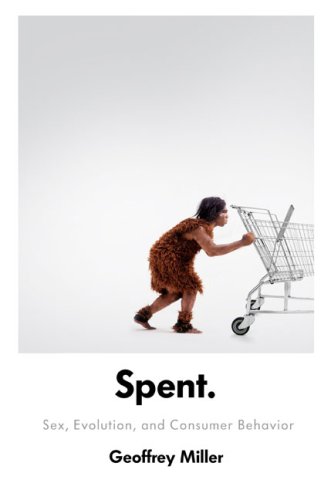
Almost all decisions we make are influenced by our biology.
 Filed by Julien at 10:53 am under experiments, random
Filed by Julien at 10:53 am under experiments, random 131 Comments
131 Comments
December 3rd, 2010
Stop being a fucking pussy
Ok, you want to be successful. You think you’re trying your hardest. Dammit you are pretty sure you’re gunning for it, really hard!
But here is the truth: You’re not.
In every industry, there is an edge. In your business or personal life, it doesn’t matter– somewhere, there is a cliff. Most people don’t want to get to close to it, because they’re afraid they’ll fall off.
Thing is, the edge is where all the cool stuff happens. I know you don’t want to make a decision that is irrevocable and wrong– a decision from which you might never recover– that’s natural. But guess what?
You are actually in the middle of an open field, inside your house, clutching your purse, crying like a little girl while looking at an edge you see on television.
In other words? You are nowhere near the goddamn edge.
It’s time you stopped being a fucking pussy.
You want a better blog, a more profitable business, a happier marriage, or a better life? You want to meet a girl, or travel to Asia, or lose weight, or meet an Asian girl who’ll help you lose weight, or something else? Great! So does everyone.
Just to be clear: for other people, it is entirely clear that you haven’t fully committed. If you had, you would be closer. Why?
You would do the exercises.
You’d take people’s advice (especially if it made you uncomfortable!).
You’d learn to talk to people.
None of these things require money! All they require is work and understanding yourself. It’s not that hard!
Look, your lack of progress pretty much stems from things you’re avoiding because a) you are unsure of how they’re done, or b) you’re unconsciously (or consciously!) unwilling to do them. In other words, you are a fucking pussy.
You are either paralyzed by the fact that you don’t know how to get to your goal (hint: ask someone who does or fucking Google it!), or you’re afraid of doing it (hint: you clearly don’t want it bad enough). It’s actually that easy.
It’s time you looked your delaying tactics in the damn face.
What, exactly, are you afraid of?
Is it getting ridiculed or judged?
Will people around you stop loving you?
Are you afraid of looking stupid, or going broke?
Do you think you would offend people?
Let me tell you about offending people.
Today, my designer Justin emailed me a draft of a pop-over thing we’ve been talking about. It is crazy offensive. Would you like to see just how offensive it is? Click on the images below.
(The second image is what happens when you get rid of the first one. Yes, it actually says “Annoying Subscription Pop-Over” on it. Hehe.)
Did it make you laugh? It definitely made me laugh. You might like it, or hate it, but I’ll tell you one thing: it will work and it is not for pussies.
(Also, it vanishes after that and is for first-time visitors. Chill out.) ;)
The bottom line
Look people, use your common sense. Millions of us all over the world are having the same problems as you. All of us have the same blocks– you, me, everyone. Those of us that get through our anxieties and just do the things we need to do, we are the ones will make it. The others won’t.
You might be saying, “No Julien, I’m just procrastinating. It’s in my nature. I’m just bad at being organized.” I call bullshit.
Examine your intentions. There is a real something holding you back– I guarantee it. Unless what you really want to do is sit around playing Nintendo DS all day, there is something else there.
Look, the weekend is coming up. I’m going to give you a chance. All you have to do is not be a pussy for a whole weekend– very easy, ok? And if you feel anxious about absolutely anything, do the following:
Ask yourself out loud: What am I afraid of?
I guarantee that when you do this, when you say it out loud and listen to the answer, your answer will sound stupid. Because most of our issues are pretty stupid.
Then, after you do that, you will get down to business. You will do what you have to do, because it will be clear what you’re avoiding. And after a weekend of that, you will come back here and you will tell me what happened, ok? I’m counting on you.
Look, some of you are probably offended by this post. That’s fine. For those of you in that camp, I would like to inform you of two things:
- You’re probably a fucking pussy (heh); and
- I made a version for you and your pussy Twitter friends. See below.
The rest of you, get back to fucking work.
Hey, you know what else? I just realized something. People have been asking me forever what this blog is about, and I’ve never had an answer. I think I just found one.
If you want to find out more about how to actually do what you have to do and own it, then subscribe. Good stuff will happen.
Here, I’ll put a subscription box right here. Type in your email address and press enter. And if you could tweet this out too, I would really appreciate it. People really need to hear it. Thanks.
 Filed by Julien at 8:55 am under direction, rant
Filed by Julien at 8:55 am under direction, rant 130 Comments
130 Comments
April 5th, 2011
Why You Should Quit the Internet
Life is a series of decisions, one after another. When put together, they make you who you are.
Each decision is a bet. Some are made consciously; others not. Each bet you win shows you what you’re capable of, and what your next bet should be. As you win more bets, you get more ambitious. This is a good thing.
Here is an ambitious bet I just made that I think will interest you: in May, for 30 days, I will be quitting the internet.
Instead, during this time, I will be walking an 800 kilometer, thousand-year-old pilgrimage route in Spain– one that many people have walked or dreamed to, from Paulo Coelho to American President John Adams.
It’s something we’ve been planning for almost six months. It’s pretty cool to be on the cusp of a big trip like this.
But this post isn’t about my personal quest. It’s about yours.
Do you have something to quit the internet for?
Why you should quit
Our brains are not wired to be made happy by the internet. Our emotions, like fear and joy, are based in a primal understanding of the world. This is something we can’t escape.
Saying the web is important to your life is like saying that television is important. It might be social, sure, but it’s still media. It can help connect but it also divides in a very fundamental way.
Touching a screen isn’t the same as touching a person.
The best stuff happens outside the web. Outside is new and frightening, not comfortable. Encountering pain helps transform your vision of yourself and forces you to grow.
And there is very little that is new and frightening on the web. The biggest realizations happen when you are in free-fall, not when you have a safety net.
Happiness is not related to Twitter feeds, blog posts, or even books– although books do get closer. What happiness is connected with is unique human experience, often untranslatable into any other medium. Much like Jacques Derrida’s ash or Zen, the quiet and the sacred have no way of speaking for themselves other than personal experience.
So, personal experience is what we must seek out. It’s personal and rare, so unlike what’s easily accessible (the web), it’s valuable.
Why you need a quest
But your life needs one. Your existence needs a purpose. For now, I have one. It helps me think about the future and will give me time to think and consider what’s important.
You should have a quest for the same reason. You should feel like you’re a part of something bigger, and that you’re going somewhere. You should feel like you have challenges to overcome, things that might even feel insurmountable.
It may interest you to do something like what I’m doing– or you may find it boring. You may have some inkling of what your quest should be, or you might have no idea. It might be crazy and amazing to others, or it might be entirely mundane to them. No matter, because it’s your quest, not theirs.
It doesn’t need to impress anyone but you.
Consider
Sarah Marquis has walked over 30,000 kilometers in the past 20 years. As we speak she is walking from Siberia to Australia.
Paul Nicklen goes to the coldest, most miserable parts of the world to photograph and document the animals that live there.
Brett Rogers makes documentaries about rivers by traveling down them in non-motorized craft.
Shea Hembley leaves drawings in nature for people to find, like secret messages.
How to find inspiration
The examples above are just from TED conferences I’ve attended this year, they weren’t hard to find or anything.
But isn’t it interesting how the examples I mentioned all came from people going to tough natural environments? If you’ve been here a while, you probably already know this about me. I love nature, earthworks and endurance. It’s all right up my alley.
You probably have stuff that’s similar. Do you remember what it is? Often, ideas like these are so buried that you have no idea what you actually care about anymore. Or, you do remember, but don’t realize how long it’s been since you thought about it.
So how do you find something you care about so much you’re willing to take a break from your regular life? In the end, that’s what this is about– finding something that’s so great, you want to take a break from your regular life to do it. Work, the web, your neighbourhood, whatever it is, if you feel like you’d love it more (or as much), you’re on the right track.
You can do this by performing certain exercises– removing boundaries like money, dependents, or the amount of possessions you have. Some people say you should write ideas down until you cry.
But this isn’t about finding your one great idea. It’s only about taking one single step forward, which is much easier.
Why we climb mountains
Quests in movies always go the same way. The hero is seeking enlightenment, or vengeance, or peace. He has to find someone to teach him. He seeks out this person on the top of a mountain or desert– that is to say, a hard place to find. This is a metaphor for how we find clarity and learn new things. It’s hard.
I’ve talked about this before, but it’s worth mentioning again. The stories in our lives inspire us because they are foundational to who we are. And we learn from them what steps we should take in own quests, and where we should go next from where we are.
Joseph Campbell listed a these steps in the Hero’s Journey. Have you ever seen them?
- The Ordinary World
- Call to Adventure
- Refusal of Call/Reluctant Hero
- Meeting Wise Mentor
- The First Threshold
- Tests, Allies, and Enemies
- Supreme Ordeal
- Revisiting the Mentor
- Return with New Knowledge
- Seizing the Sword (or Prize)
- Resurrection
- Return with Elixir
Where are you in here? Do you recognize yourself? Most people get stuck around number 3. Some are later, but not many. Are you one of them? If so, why are you refusing?
Are you stuck at number 7? This is your darkest hour, when you feel that you should give up and quit. It’s another major departure point from the quest, but in order to complete it, you have to go forward. It’s also what Seth Godin calls The Dip, but it’s universal. Have you been tested? Did you succeed?
Some people are at number 1 and have never considered anything outside the corridor they have lived in. Do you know any of them? Well, here’s a secret– most people who seem this way are in fact not here at all. Almost everyone is actually on a quest; they’ve just refused it, or have forgotten it. A temporary sidetrack.
To understand is to perceive patterns
I just got a deck of Pattern Seeker trading cards in the mail from the amazing Imaginary Foundation. On the cover is this message:
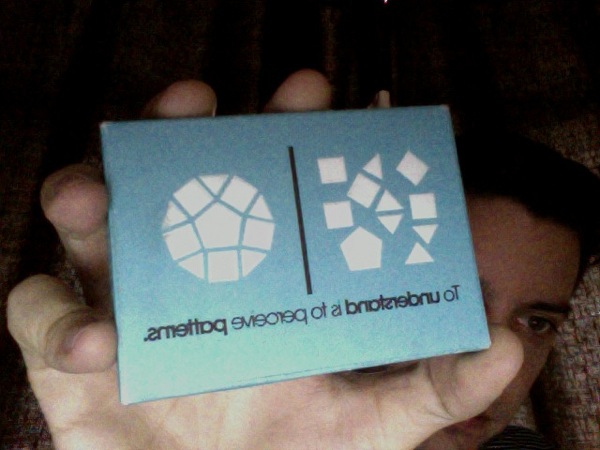
Oops, it’s backwards. Ha, the message actually works better that way.
Look, your life has patterns, or corridors, that you need to know in order to become better. You feel pain when you leave the corridor because it is the unknown. In fact, pain might even be a signal that you are on the right track. But in order to see, you need to know what your patterns are– both good and bad.
If you have nothing better to do than spend time on Facebook or hang out at the old bar, your life may need some serious adjustment. If you don’t care about what you’re doing from day to day, or if every day seems like the last, then your whole life will be like this. You have refused the quest. You are done.
With growth and flexibility comes life; with rigidity comes death. This is a truth that expands to all living things. Your body knows this, so you should too.
The easy is not worth doing; only the hard is. It is your exposure to the new should become the norm, and your return to the old should be comfortable, but brief.
Shipping
Seth Godin recently told me by email that the most important time in any project is the point at which you decide, unequivocally, that it will ship. Before that, it’s just an idea you toy around with.
Think of a relationship. Things are beautiful and perfect when they are new or aren’t real yet– but that’s precisely because they don’t exist. Once they become real, they get messy. That’s what happens when something goes from the imagination to actual existence.
Ideas, in fact, aren’t worth much. Everyone has them, even geniuses, but only those who deliver have an impact, and only those who know themselves are able to deliver.
Why you should act stupid
Act as if you are stupid. Read in order to learn something, then act as if you’re stupid again and read more to make see if you’re right. Then go out into the world. Assume you will fail, but accept it, because it will make you less stupid.
Think this paragraph is funny? Well, it is, but it’s also true. What we know is vastly dwarfed by what we do not, but we act as if the patterns we recognize are all that life is or can be. This is wrong– this is actual stupidity.
If you want to be smart, you have to begin by being stupid. The hard part is staying that way.
All on the path are brothers
A few months ago, a friend pointed me to this essay from Julian Assange’s old website. I remember thinking a lot about it. He had a quest, and in a way, it doesn’t matter what it was. It only mattered that, when he really looked at himself, he was doing what he thought was best for the world.
Good for the world, but not the way that people think Reaganomics is good for the world. The way that children think it.
Because, if you have a quest, then all of the suffering makes much more sense.
If you have a goal, then a lot of the actions you need to take become much clearer.
Even if your goal isn’t perfect, that doesn’t matter. What matters is that it’s better– even 5% better.
You feel like you are a part of something. You feel like you will come back and be transfigured, and that people will see you differently.
But in fact, you will be more yourself than you ever were.
Final note
This is my 1000th post on this blog. I’m pretty proud of it.
I remember when I started in 2003, I didn’t think I was a writer at all. I did podcasts because I considered myself a verbal person. Well, I’ve changed.
When I began, I wrote bullshit, self-interested posts that were based on people thinking that my life and myself were interesting. On my show, I played a bunch of hip-hop music. It turned out that what people wanted to hear were my opinions. So I talked more.
The result, I guess, is where I am now.
This blog is now about growth. I’ve said I’d like to be unrecognizable in five years. I’d also like the same for you.
So I’d like you to subscribe. Why? Because quests are important. Top 10 and Twitter posts are not, but they are loud, so they seem that way. Often, the stuff that’s important is quiet. It isn’t obvious.
Your quest is quiet but important. So is mine. Hopefully, we’ll learn something, chat about it, and help each other along.
Thanks.
 Filed by Julien at 9:42 am under challenge, direction, projects, risk
Filed by Julien at 9:42 am under challenge, direction, projects, risk 102 Comments
102 Comments
December 27th, 2010
How To Recognize an Idiot
Do you have a New Year’s resolution you wish more people would make? I do.
I wish we would stop acting like we know what we’re talking about, even when we don’t.
Everyone is so proud of their ignorance in this world that it baffles me. So can everyone just do me a personal favour and make their resolution to stop acting like they know something when they obviously don’t have a clue!?
I call these people Fake Experts (feel free to use #FakeExperts on Twitter since this shit will be going viral anyway). They know everything about every subject and they always have a cooler story than the one you just told. These people are everywhere. You will see many of them at New Year’s Eve parties, so I figured I’d give you a primer on how to spot them real quick.
Example 1. Politics.
Oh man, these people are amazing.
Listen, I don’t care what your political leaning is, I seriously don’t. You can believe that trees are people for all I care, as long as you actually do your research, you feel me?
My favourite is when people spout some kind of half-baked political ideology and you can literally tell what news segment they heard it on. It’s like these dudes are channeling MSNBC, Fox, or the 9/11 Truth Movement, because they trust the horse’s mouth so much that they feel everything they say is sacrosanct. Seriously, all they need is a Ouija board.
I have an idea, instead of watching the news, why don’t you research the issue and come out with a nuanced conclusion of your own!!!???
Solution: Begin posting radically false things about their heroes on their Facebook wall and get put on limited profile faster than Keith Olbermann can say “HOW DARE YOU SIR” or Glenn Beck can start crying. OH YEAH.

Example 2. Social media experts.
Right off the top of my head right now I can name like 5 social media experts whose advice basically sound like Mad Libs. In fact, you know what? I’m going to register SocialMadLibs.com just for this very occasion. There, done. Have fun.
But social media experts are just one branch of idiots which I should really call “(fashionable technology) experts.” They’ll move into the next thing so fast you won’t even remember what their old Twitter bio was. Karen McGrane called it in Iceland when she said that social media experts are now “content strategists.” Yet these somehow, these people have not had any of their own content actually get popular. It’s insane.
Repeat after me: “And how will that help me sell more?” There we go, it’s like crosses and garlic on a vampire. Too easy.
Example 3. Life/career advice.
Otherwise known as morons on the internet telling me about the world like they know better. God, these people are unbelievable.
So I’m sending out a photo of a new tattoo I just got the other day. Arno at Imago here in Montreal (great shop) did it and it’s epic. I tweet it out.
Some douche responds: “There goes your chance at a real job.”
Uh, dude? You are a real estate agent. How the fuck would you know how to do my job?
The problem with these people is that they seriously believe that the world they live in is the only world that exists. In this guy’s world, if you have tattoos, you are a loser. In my world, a tattoo does not stop you from hitting the New York Times bestseller list! So go fuck yourself.
But this isn’t the only example I can find in this category. Let’s not forget retired in-laws that give you outdated, stupid career advice, or fashion advice from people who dress like they’re homeless!@#$%
I’ll tell you what, once you take your head out of your ass, I will listen to your advice.
Example 4. Wine.
Protip. Stop swishing it in your mouth like a fucking buffoon.
What’s great is that these fools are so predictable that restaurants actually design their wine lists around them.
Nobody wants to look cheap in front of a date or the waiter. This means everyone order the 2nd cheapest wine instead– and restaurnts use this to their advantage by making it the worst deal on the menu. Fake wine experts fall for this every time because they’re afraid of looking stupid or asking questions.
Wine guys exist in every environment. They’re afraid of not knowing about a certain band so they nod in agreement during a conversation, or they don’t know about the newest movie so they just stay quiet and let people assume. Hint! People know you’re faking it! The waiter does, and your date does too.
So stop it.
Example 5. Science.
I’m having a conversation with an acquaintance about food and, after ridiculing alternative methods of eating, he says: “I think everyone should just eat a balanced diet.”
This shit is my absolute favourite.
First of all, how the hell would you know what’s balanced and what isn’t? Have you read any science, or are you just reading Men’s Health and/or Cosmo and then defending it by saying you “heard that” something is true?
In fitness, there is a word for this. It’s called broscience, and it’s not based in reality at all.
The same thing applies, on both sides, to people arguing global warming, evolution, and many other fields, and you know it.
We are convinced by these people because they themselves sound convinced, not because what they’re saying is real. They’re demagogues who appeal to emotion and intimidation in order to make you feel like you have to agree.
People like this use words like ”balanced” all the time. Why? It’s one of those words that sounds positive, but generic enough that you can’t disagree with it. What’s the opposite of balanced? Unbalanced, I guess. And nobody wants that! That sounds bad!
I have an idea! How about you read the science, dumbass???
Wipe out these generic words from your vocabulary. To people that know better, they label you as a fucking idiot.
Look, here it is right here. Everyone needs to get better at the following phrase. Repeat it out loud with me now and use it 5 times today.
“I don’t know.”
“I haven’t really informed myself.”
“I wish I knew more about that.”
You see how you’re not stupider, smarter, or anything after using that? You see how no one ridicules you? Get used to that phrase, people, because it’s true about almost everything.
We need to do ourselves, our peers, and everyone in our lives a favour and stop being proud of our own ignorance. Maybe read a book, even. Learn a thing or two before we open our mouths.
The world would be a better place.
Thank you. Please tweet this out, and enter your email address below and press enter if you like this post. Cheers.
December 21st, 2006
Why to fear white kids
Dear suburbanites: Do not fear black people. Fear your own white children.
- RZA feat MF Doom – Biochemical Equation
- Soul Position – Hand-Me-Downs
- Molemen and Myka 9 – Redemption
 Filed by Julien at 6:34 pm under download, hip hop, podcast
Filed by Julien at 6:34 pm under download, hip hop, podcast 87 Comments
87 Comments
May 15th, 2012
A Question About Staircases
Imagine that you were running a race on one of three escalators. Which race would you rather be in?
1. An escalator that is helping you up.
2. A broken one that is not moving at all.
3. An escalator that is going down while you head up, making it harder to reach the top.
Lots of people are racing, and you want to win. Which race do you choose?
 Filed by Julien at 10:41 am under challenge, random
Filed by Julien at 10:41 am under challenge, random 87 Comments
87 Comments
February 6th, 2012
How to Change Your Life: An Epic, 5,000-Word Guide to Getting What You Want
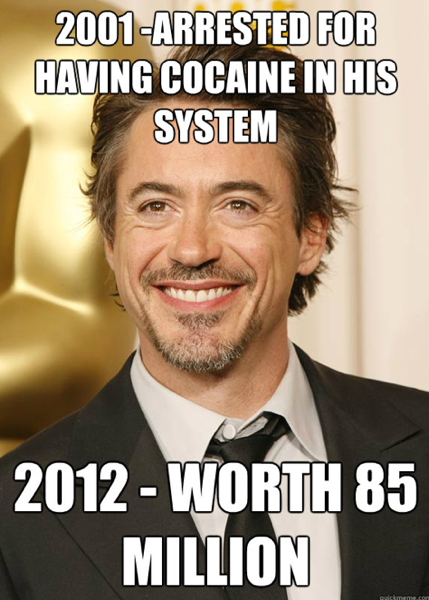
Everybody talks about it. Nobody does it.
If I’ve learned anything about the world by my age, it’s that most of the world, myself included, is composed of talkers, not doers.
There are very few exceptions to this rule. The good news is, you can be one if you want.
The ability to act is not something you’re born with. Change is a skill you can learn– as long as you have the guts to actually do it.
I’ve changed a lot in my life, but it’s not because I’m special. I just created special circumstances. Whatever you want is usually easier to get than you think, as long as you are willing to adapt and do what is necessary.
Now, most posts of this nature will give you little tips, maybe even 100 tips, in the hope that you’ll be impressed by how large the list is and just tweet the hell out of it. They do this because it works (my last one is currently getting 40,000 visits a day from Stumbleupon actually), but writing of that type also usually appeals to those who want simple answers, and that’s not what I’m interested in right now.
So I’ve decided to make this post ridiculously long instead. It weighs in at almost 5,000 words. You may want to go make some coffee.
By the way, I’m also going to say that I’m not going to be writing about this stuff for much longer. I’m starting to get referred to as a “self-help” guru, and honestly, I don’t like it at all. I also began to realize that once you start to talk about success, instead of be successful, you become a talker, and not a doer, which is counter to what I’m trying to do in life.
I’m starting to figure out that the way your time should be spent is largely like a pyramid, with a wide base of learning, with a smaller level of acting on top of it, which is directed by the learning, and then on top of that, an even smaller level of writing about it. If you begin to live your life differently than the pyramid should be built, it becomes unbalanced and topples over. But that’s another subject entirely.
Anyway, the point is, I can’t just snap my fingers and change you– nor would I want to if I could. But what I can do is give you guys a real primer on how change is done. This would be the learning part, as said above, but then you’ll need to go ahead and act in order for any change to occur. So I added in homework assignments. As long as you know this, and you’re willing to actually do them, then we can go forward.
Take the following as one guy’s experience, along with the proverbial grain of salt.
1. How to break bad patterns
The entire human brain is a complex pattern-recognition system that, at one point, was largely there to help you survive and reproduce. Patterns were recognized to help you react properly to a new stimulus, which kept you alive long enough to have as many kids as possible (after which, you could basically die as far as your genes were concerned).
The problem is, that’s no longer our biggest priority, at least as far as the conscious mind is concerned. Now we want to write books, and we want six-pack abs with only 4 hours of gym time, blah blah. We want to know ten languages and have a gorgeous, smart and successful significant other, etc. etc. Oh yeah, and we want to be happy.
The problem is that our whole brain is still largely designed to keep you alive until puberty, and then, when that moment happens you’re like “I’m a man” or whatever, your brain’s job is to get you to reproduce as often as possible, doing your part in the long-standing, subconscious war to stay in the gene pool.
In other words, your conscious brain is trying to do one thing, while the rest of your brain is trying to do another. Our brain is now maladapted to our goals, and its patterns are hard to break because, 100,000 years ago, learning about the world meant just surviving, which was fairly easy, and once that was under control, you could stop learning entirely because the forest you lived in wasn’t going to be changing anytime soon.
Now, our world is changing all the time, and in order to change ourselves, we need to ease into and embrace the coming chaos. Those that are most comfortable with change for change’s sake will adapt better to the future, and you can only get good at change by trying to do it, in small ways, on purpose.
In other words, you have to try and break your patterns and build new habits around them, constantly, because that’s how the world now works. You also have to gather infrastructure around you that helps you do this, because your brain is simply not built for it.
This, by the way, is central to my thinking about challenge, and how your reactions to any bet or dare will shape your future. You need to get good at challenges– in other words, at reacting to unexpected stimulus– if you are going to be capable of change.
Now, I know that some people would say that people’s problem with change is fear– I know that some people would argue that it’s the number one thing stopping most people– but I don’t actually think that’s true, on a conscious level. I think most people’s primary problems is that they literally forget to keep doing the thing they wanted to do. “Dammit,” they think, “I wanted to write today. I forgot. Oh well, tomorrow’s another day.” And then they forget tomorrow and they day after, and it’s all shot to hell until next New Year’s. Don’t pretend you don’t know what I’m talking about.
So while fear is a problem, building a habit of doing things that need to be done, whether you like them or not, is often a good first step. Let’s start by listing some ways to do that.
Find the moment where you have the most energy. For me this is usually early in the morning. I have a dog, so I may walk him, or my girlfriend may, but I keep all the lights turned off, launch Freedom on my computer (as it is on right now) and then write for one hour. I have no goal but to sit down and do it. This takes the pressure off. I know that if I don’t do it before I do anything else, it just doesn’t happen. I learned this the hard way.
Do the hardest things first. The way life works is that easy things will get done anyway. You look at your list of stuff and think, “what is going to be the most difficult thing to do?” If you work on this one first, you’ll discover that your day will get easier, and the rewards will get better as time goes on. So the first thing is hard, but next is easier, and then easier still, and so on until you have the most fun doing the easiest things on your task list.
Have a list of 5 things you want to do, maximum. Don’t start with 5 world-changing acts, though. Begin with one and do it for as little time as you can so it gets done. I know that Zenhabits recommends you start with 5 minutes a day, but I’ll often start with 15 or 30 minute chunks. It’s how I started drawing again, 10 years after dropping out of art school.
The goal is not to succeed. It is just to sit and do it. As I’ve said before, ugly is just a step on the way to beautiful. If you sit down and expect anything, you will freeze up. So just sit down with no expectations. Like the gym– the goal is just to go and do your best, not to deadlift 500 pounds, but to lift just a little more than last time. And even if you failed at that, it’s fine, because you’ll be doing it again next week. No rush. Just sit down and begin.
Homework assignment 1. I know you guys like homework, so here’s something for you to do right now. List the 5 most important things you can do to improve your day. Then, place them in order of difficulty, starting with the hardest. Next, set your alarm right now at one hour earlier than you’re used to waking up, and begin tomorrow morning with the hardest task you have.
DO NOT CONTINUE TO READ UNTIL YOU HAVE DONE THIS.
2. How to get back up again
While you are building habits, it is 100% certain that you will be failing, not just a few times, but often. This is because you’re doing new things, and new things are by definition hard to do.
But the point is never to look back at past failures, and even not to sulk in current ones, but to say “I’m going to start again right now.” In other words, it’s not about this current attempt and its success and failure. It’s about the process of doing it again no matter how horrible the previous attempt was.
I’m sure you know from experience that one of the most difficult things to deal with when making new habits is the realization that you have screwed up. A few days ago I was going out for a friend’s birthday and I was thinking “Ok, well I only have one more thing to do. I still have time though, I’ll do it later.” God, it’s amazing how often I still believe my own bullshit.
I know that, from reading this blog, some people seem to think that I am some paragon of industriousness. This is so far from the truth that it’s laughable. I’m actually one of the laziest people I know. I have the most excuses, among the most horrible habits of anyone I know, and I am sure that, in an alternate universe somewhere, I am either homeless, a janitor, or dead. I am not exaggerating. That I’ve gotten through all this is somewhat of a miracle.
I say this because I want you to know that I am not unlike you, and that you are not alone in your horribleness. We’re pretty much the same, I just happen to be observant enough to have learned a few lessons. One of the big ones is that I am no longer as concerned with failure.
The only real difference between you, the one that does nothing, and you the super successful multi-millionaire, is that the other guy gets up over and over again, like a boxer in the ring that needs to win the fight.
In life, you can just get knocked down and stay down forever with no real impending deadline. In sports, you can’t. There is a timer, and you can hear it as you are failing, and the only option is to get back up again. Since life does not work this way, I have taken an alternate stance, which is that no one is watching or even gives a damn. My failure is inconsequential and silent, so I can fail over and over again in my little cave while no one is watching, and then as I get better, I can get more public about my efforts and do better.
Produce horrible material on purpose. Whatever your work is, perfectionism is a killer. You just sit there thinking “I’m horrible at this,” totally paralyzed, unable to continue. *****
Give yourself several chances in a day. I read the book 18 Minutes earlier this year and it gave me a great tip to help me get up over and over again. I set up a timer now using the RE.minder app for iPhone that pings me once an hour to ask “Are you being productive?”
Realize that there are no consequences. Almost everything that sucks stays in the draft stage anyway, and the stuff that doesn’t (and is public) has almost no social consequences at all. I have a friend who’s one of those dating coaches, and he always says that the perceived social consequences of talking to strangers is always WAY worse than actually doing it. Whatever errors we make are diluted into the fabric of society, so the larger the fabric is, the smaller the error seems.
Homework assignment 2. Carry around a smartphone, or alarm, that reminds you every hour (9 to 5) to get your ass back to work. Sit down first thing in the morning and write, draw, go to the gym, or create something, no matter how bad the result is. Do it for a given time period, begin before you stress out about it, and continue until the anxiety has subsided.
DO NOT CONTINUE TO READ UNTIL YOU HAVE DONE THIS. SERIOUSLY.
Ok, we’ve gotten past the basic stuff.
You’ll notice so far that what we’ve been talking about is largely an issue of philosophy. The first assumption is something along the lines of: “You are naturally weak. If you want to become strong, use society’s infrastructures and your own willpower to strengthen the structure around you.”
The second conclusion you come to is: “If you fall, the environment you fall into is safer than it has ever been. If life was at one point nasty, brutish, and short, it is now long, diplomatic, and peaceful. Failing is therefore easier. So is getting back up.”
If you follow these, the next conclusion must therefore become “I have a structure around me to make things easier than they’ve ever been. And even when they are hard and I fail, nothing much happens. So there is really no reason for me to be afraid at all.”
I’ve actually written a whole free book about this (that you should download!) so I won’t elaborate, but one reason that many people can’t change is because they simply can’t handle the flinch– a reflexive almost physiological response to exiting the safe zone. This may happen even though they know, consciously, that their safe zone is huge. In this case, it’s not the conscious mind that matters. It’s the emotional one.
So you have to start convincing your emotional brain that beating the flinch is no big deal, and you can only really do this by having visited the other side. In other words, the intellectual part of the equation will only get you so far.
You can’t just think it. You need to feel it.
How do you do this? Each person’s methods will differ. I can tell you that having epileptic seizures, getting tattooed, pierced, and branded over and over again from the age of 18 until now (32), helped a lot. I can tell you that learning to talk to strangers helped a lot, as does (badly planned) travel, which helps me deal with unexpected circumstances as they arise. The more you leap into the unknown, the more you discover that the unexpected is rarely something you need to actually worry about. You ease into surprises and learn to deal with them as they come instead of reflexively avoiding them.
As you discover this, you’ll see that it becomes a self-fulfilling prophecy, a virtuous circle that builds confidence upon confidence in layers, like armour or calluses.
But each type of armour is actually quite specific. You don’t lose your fear of getting jumped unless you prepare for getting jumped beforehand, and you don’t lose social anxiety unless someone teaches you what to do, and what not to do.
So losing the flinch isn’t just about jumping into the unknown; it’s also about learning what technique works in the new environment you’re leaping into. Swimming helps you deal with being in the water, but nowhere else, while fighting helps you learn to deal with fights, etc.
Write down the worst case scenario. I picked this one up from Tim Ferriss. While you’re in a safe place (i.e. not under pressure), look at what’s going to happen and ask yourself what the worst possible conclusion is. You ask someone out, they say no, or worse, maybe they laugh. You’re embarrassed, and in a few days you’re over it and laughing with your buddies. Or, you ask for a raise and your boss says no.
Recognize that pain evaporates quickly. The brain is wired to associate pain with death. Most pain, however, is insignificant and doesn’t last– either it vanishes quickly or, in the off chance where it’s longer-lasting, it’s dull and can easily be ignored. Realize that pain is a temporary, vestigial reaction created by evolution in an environment where a single scrape could mean death by infection. Then recognize that we have antibiotics and move forward anyway.
Deal with discomfort as it comes; don’t predict it. As I write this I have turned my internet connection off with an app called Freedom. I do this because it makes me more productive, but I also notice that being disconnected from the web feels awkward, and it makes me way more nervous than I should. I keep thinking “when is my hour up,” or “I’ll just check my phone,” etc., because this process of writing for one hour (minimum) per day leaves me struggling to find things to talk about. But it also means that I’m getting better at discomfort, every day, the same way you adjust to a cold shower after a few seconds of being in the water. And as the hour finishes, I can feel myself internally saying “thank God it’s over.” Now think about this: if I can’t deal with that tiny discomfort, how will I deal with anything else that happens out in the real world?
Homework assignment 3. Find several daily practice that makes you uncomfortable. Go to the gym and put yourself (safely) under as much weight as possible. Meditate every day for as long as you can stand it– no email, no phone, no clock– until your alarm says you can get up. Start with ten minutes and do it right after your biggest task of the day (as discussed above).
YEP… DO NOT CONTINUE TO READ UNTIL YOU HAVE DONE THIS.
4. Raise all hurdles.
I’m going to guess that, in your social circle, you don’t have that many people you hang out with that make you feel like utter, worthless garbage. I don’t mean a psychotic ex or something, I mean someone that is working harder than you, has more money than you, is happier and better with people than you, all that stuff.
A lot of change has to do with watching your blind spots. Returning to old habits is easy when you have no one watching you, calling you on your bullshit when you fall back into your old ways of thinking. You need someone, or many people, who’ll call you on it, who will tell you the truth when you need to hear it. If this is someone you hire, that’s fine, and if it’s someone close to you, like your spouse or friend, that’s fine too. But they have to be able to both tell you the truth, help you raise the bar, and be in your corner at the same time. This is not an easy person to find.
About a month ago my friend Mitch and I got together for sushi. He told me that it’s rare, for people at his level (and mine) to have someone call him out, to tell him he’s wrong. I feel the same way. People around you don’t want to rock the boat, but if you’re like me, you’re surrounded by supporters and no one is telling you you’re not good enough– which is actually what you want to hear. This, by the way, is why I love that I’m going to TED this month. Simply put, I know that five days of feeling like garbage about my accomplishments will do wonders for me.
Anyway, the point of this was that, the next day after I called him on his BS, as he had asked, he produced a 15,000-word book proposal. It was almost instantly sold to Hachette by our agent and became this book.
So the question is, what would it take for you to produce that much amazing material, that fast?
Stay in over your head at all times. If you’ve ever wondered why my blog has the name that it does, you now have your answer. “In over your head” should be the state you are always reaching towards– not knowing entirely what you’re doing, having taken on too much, being too ambitious because you’ve made ridiculous promises, etc. All these things are good because they will make you extremely resourceful. You need to find ways to over-promise so that you begin to freak out, at least a little.
Have regular meetings with people way above your level. I just got introduced to Paulo Coelho via my co-author Chris Brogan. I love his work, as many do, but unfortunately doesn’t make me feel like garbage because he is so above my level that I can’t even relate to his experience and success. So while I’m extremely pleased to be speaking to him (stay tuned for that), in terms of raising the bar, it doesn’t quite cut it.
What you need are people that are close enough to your level, in age, intelligence, and resources, but who have done much more with them. When I remember that Gary Vaynerchuk is only 35, for example, now that makes me feel like garbage. When Mitch gets more speaking engagements than I do, same thing. When Greg is flying to New York (again) to meet high-up VCs to get his company sold, and I suddenly remember that he’s fucking 23 years old, that makes me feel like garbage. So find people like this. Buy them lunch if you have to, whatever it takes.
Incidentally, I’d like to mention that accomplishments alone can’t carry you. After a while, I have a feeling you’ll get burned out on them– that the bar will get raised so high, and you’ll have done so much, that you simply don’t care anymore and just want to produce good work. That is a good thing, of course, and you shouldn’t just be driven by accomplishments, but it genuinely does help me, so that’s why I’m telling you that.
Expose yourself to ideas you don’t understand. People often write or produce ideas and then don’t draw them to their logical conclusion. You can often see people trying to emulate the Seth Godin style of post, for example, because they think that style works since he’s the most popular marketing blogger, etc. But the reality is that these people are having simple ideas, writing them down and going “wow! I’m done,” when they’ve in fact just begun.
Ryan Holiday wrote a post a while ago which is relevant here (see How to digest books above your level). This is important because pushing things past their usual end point is the only way you will ever come across conclusions that others haven’t yet had. Last week I spoke to Gad Saad, who basically invented evolutionary psychology as it relates to consumer behaviour, by combining ideas that had been discussed elsewhere but had simply not been put together before. His work is considered a breakthrough in the understanding of how human beings make buying decisions.
Homework assignment 4. Start reading more. Read biographies of people you have heard of and respect– not necessarily Nobel laureates or geniuses, but people who are like you that you respect. If you’re from Iowa, pick someone else from Iowa. If you’re a web entrepreneur, find people at your level but that have done more with it.
DO NOT CONTINUE TO READ UNTIL YOU HAVE DONE THIS.
5. Change is cyclical.
We’ve come almost full circle at this point. You’ll notice that once your bars get raised, and you can build habits that help construct new skill sets to help you reach them, you will continue to expand your horizons exponentially compared to where they were used to.
I wrote this post, by the way, by using the exact set of things I wrote about here. I could not have written 5,000 words about this without having a daily writing habit. I could not have finished it without being ok with seeing this post fall flat (which it might). I’m ok with it falling flat because I have seen posts I have worked hard on fall flat before, and besides a little disappointment, I did not die… I was fine.
But you can definitely see the process, now, of how normal people become extraordinary through changing their behaviour alone. Then, after behaviour changes, the mind usually changes with it, leading to more confidence, which expands your reach even further, etc, all in a giant cycle.
The sad part about all this is that some people simply are not willing to put themselves inside the system to make it happen. Most people feel as if they are doing it, but they often are not. What they really need to be doing is stop listening to themselves as if they knew what was best for them. The reality is, they don’t. Only when you recognize this can you make change happen.
Conclusion
Ok, this is all fine and good, but the final question is, what should you really be changing towards? Maybe you’re not happy with where you are, and you want to go somewhere else, but why do you even want to go there? What’s the goal, and will you be happier when you get there? You don’t know, so you may not want to change.
I suspect that the real answer to this is that it simply does not matter where you go. Remember, you’re not looking to be perfect. You’re only looking for a small improvement over your current state, and as long as you’re ok with fumbling on your way there, you should just start moving immediately and deal with the decisions as they come.
With that in mind I should say that I really don’t know how to finish this post. It’s by far the largest post I’ve ever written, practically like a mini-book, and I’d just like to finish it so I can go ahead with my drawing, cleaning out my inbox, and everything else I need to do today before I can go out and see my friend Justin without any guilt on my mind.
So thank you very much for reading all the way through. I hope this helps. Please leave me a comment if you have any questions and I’ll do my best to answer all of them. Oh, and please subscribe using the form below. Thanks. :)
 Filed by Julien at 3:19 pm under challenge, guide
Filed by Julien at 3:19 pm under challenge, guide 80 Comments
80 Comments
November 29th, 2010
The Quick, 12-Step Guide to Quitting That @#$%ing Job You Hate
Guess what, it’s Monday! And you’re still at that job you hate. Nice.
1. 9am. Get to the office. Go straight to the coffee machine. Hang out there for 10 minutes before heading to your desk. Dread the workweek.
2. 9:10am. Check Facebook and email, despite having just done so on your iPhone 15 minutes prior. Delay the inevitable start of an empty, energy-draining day which will leave you uninterested in social interaction, learning, and sex.
3. 10am. Look around at your co-workers. Realize that they are all either a) mindless drones, b) shriveled, pathetic versions of their former, bright selves, or c) social-climbing douchebag sociopaths. Question the purpose of your existence as you stare at your reflection in your computer monitor circa 1995.
4. 10:05am. Realize how much longer you’ve been at this job than what you intended, awakening in you a horrible, hateful anger which had until now remained dormant like a sleeping dragon for longer than you thought was possible.
5. 10:10am. Begin shaking in rage. Pop a blood vessel in your eyeball. Briefly choke the telephone as if it were some unknown person’s neck before regaining your composure.
6. 10:30am. Analyze options. Consider that, perhaps, you could ask for a transfer to another department or another city. With horror, become conscious that everytime you’ve spoken to them on the phone, they seemed even more brain-dead than the mouth-breathing sycophants in Human Resources.
7. 10:45am. Think back to the time you were offered the cool job with the startup downtown. Have dark thoughts about the we-need-you guilt-tripping that was done to prevent you from quitting. Attempt and fail to slit your wrists with a stapler. Finally acknowledge that you will have to either quit, or throw yourself off the roof, this week. It’s a toss-up.
8. 11am. Awaken to the reality that you may still have much to live for. Recall that time you wanted to work on that documentary or be in that punk band. Realize the guitar is still in the basement, and that no one has yet tried out the website idea you had that your girlfriend was excited about.
9. 11:10am. Start a list of the worst things that could happen if you quit right now. Finally acknowledge the possibility that it wouldn’t actually be that bad, despite how anxious you are about it. Picture yourself on your deathbed.
10. 11:20am. Ask yourself if you can live without your daily soy non-fat latté, your gourmet BLT with aioli mayo, or your 100% pure fruit 2pm snack bar. Ask yourself if starving for a few months is better or worse than being here and simply starving on the inside.
11. 11:30am. Realize that, fuck it, you’re better than that. Walk into your boss’ office and quit with dignity.
12. Noon. Emerge from boss’ office, possibly glowing. Go to lunch. Begin your new life.
 Filed by Julien at 6:54 am under guide, humour, parody, rant
Filed by Julien at 6:54 am under guide, humour, parody, rant 74 Comments
74 Comments
February 4th, 2011
The Future of Blogs is Paid Access
Update: Aaron Wall left an epic comment here which adds significantly to the discussion. Click here to see it (it’s #55).
Pay attention. This will be on the test.
I remember having a conversation with Chris, sitting in Café Méliès in Montreal one time, talking about business. We had an idea for a private forum. This was a few years ago, I think– maybe even before the book.
We would base is on Aaron Wall’s private SEO community, base it on our expertise in social media etc. We’d split whatever money we made, pay any blogger who wanted to be an affiliate. The idea was simple, but good and scalable. It would make a lot of money if we did it right. So we called Brian Clark– he was doing Teaching Sells at the time. He said, “Good stuff. I’m in.”
The joke is, Chris and I never did it… at least, not in that format. :)
Much later, Third Tribe would be released– pretty much the same thing we talked about. Good on Brian for actually having the initiative. :) Aaron Wall’s forum would increase in price, from $100 to $300 per month (still a good value IMHO) and continue to grow. Chris would launch Kitchen Table Companies and other private communities of the same type.
This is now old news. Or is it?
Except I’ve been talking to Mark O’Sullivan at the exceptional Vanilla Forums, who says that big web personalities are asking him about private forums for their sites. I’ve been interviewing Brett Rogers, who funds his documentaries partially by having people come along on his adventures. And I’ve just started working with Martin Berkhan, who can’t handle the flood of questions people ask him about his workout and nutrition methods because they seem to work so well.
What is there was a solution to this? I think there is. But let’s veer off for a second.
I think you can lead an exceptional life, market yourself correctly, and the life itself will help pay its own way.
Something big changed with the web. We could create personal brands, broadcast ourselves for free, and create a following. Except if we got popular, we started not being able to pay attention to everyone anymore. This is normal.
I’m thinking of Richard Nikoley. His (successful) experiment with not washing his hair for two years has led to articles in the Chicago Tribune and other places. He can’t handle the emails he gets anymore. Also Chris Guillebeau, who recently got 800 comments on a post he put out.
As Aaron Wall has said, popularity is an inequality between supply and demand. You solve it by raising price.
Books and conferences are price points– they are old methods that people are used to and don’t flinch at. I use both, and they work well. But there’s a problem with them.
Middlemen take over the old methods. They live as parasites off what you and I produce. Many of them do it without adding any value whatsoever.
There is something missing from Kevin Kelly’s 1000 True Fans method. It is fine for artists, for producers of actual artifacts, artists, etc. This is one reason Seth Godin’s Domino Project is so interesting. It cuts middlemen out. But it still requires the creation of an artifact… of a product.
What if YOU were the product?
I believe that what people want when they read your book, when they come to see you speak, or sing, or when they buy art from you– I believe that what they actually want is you.
This method has worked for authors before. Gary Vee and Tim Ferriss basically sold 1-on-1 time with them in exchange for bulk book purchases. This has the advantage of making them look big to a mainstream audience, but the end result is the same. People often want them, not the book. Same with all the people I mentioned who do amazing things.
Your audience wants to be a part of your life. Maybe, in some cases, you should let them.
Here is another assertion which I might be a bit shocking.
The future of the web personalities is the monetization of weak ties.
The web naturally creates an ecosystem of micro-stars, like television, but doesn’t necessarily have a way to turn this into a living. If you keep answering emails, forever, you become exhausted and your personal time is sucked out of your life.
The solution is paid access.
Of course, you don’t want to monetize your strong ties. That would be insane. The social norms space stays pure. You don’t pay your wife for the nice dinner she made.
But weak ties, by definition, take more than they give. They do not, as many people say, “pay in terms of attention,” except in huge masses which become unwieldy because of a new kind of demand– bug fixes, emails, etc.
Here is my theory. Once supply and demand of personal access are no longer equal, solving it through price not only helps you maintain a solid personal life but accelerates the process of popularity, by helping you free your time and do cooler shit.
A new stream of income means more freedom, which turns into a more interesting life, which turns into more popularity, which turns into more income, etc. A virtuous circle.
Of course, most of what you do is free and public. That’s one level of access. But I think that you should turn on different levels as well. Everyone in social media right now wants books and speaking gigs. You only get those at a certain level of popularity, but you could turn lesser levels on as well. Forum access, email access, Skype access– any of these could become an income stream for various types of web personalities.
But wait!, I hear you saying. Let’s say some of these weak ties become strong ties! What do we do then? Well, easy. Stop monetizing them. We could call this the dinner party rule– if you’d invite someone to dinner, then they should have free access to you. This impacts the bottom line, but that’s natural with friendships– wanted, even. Besides, friendship is more valuable than $47 a month or whatever.
Help me out here.
Look, this post has already gotten much longer than I thought it would. I could go on forever about this– it’s so logical to me that I could argue it until the cows come home. But I won’t.
Instead, I’ll ask you what you think, and to spread it if you think the idea is interesting or worth talking about. Tweet or subscribe below.
By the way, I don’t know if it’s something I personally want to do– although I’m pretty sure I could. Maybe you could too, once your audience reaches a certain mass. Wouldn’t that be easier than trying to get a frikkin book deal or becoming a social media expert? Besides, I suspect there’s only enough of those to go around.
 Filed by Julien at 11:09 am under business, community, experiments, social media, trends
Filed by Julien at 11:09 am under business, community, experiments, social media, trends 71 Comments
71 Comments
April 27th, 2012
The Short, 16-Step Guide to Getting Rid of Your Crap

Yay, it’s Friday! Time to head home and relax after a week of hard work.
1. Enter the front door of your home. Toss off your shoes. Notice, lying beneath, a pair of boots you have worn only once. Shrug.
2. Turn on the television and sit on your Ikea couch. Attempt to relax. Awaken 20 minutes later, realizing that you’ve been passively flipping through channels. Turn off the TV, remove the batteries from your remote. Toss them in your Blendtec blender. Stop yourself moments away from doing something drastic.
3. Briefly fondle the iPhone in your pocket. Stop yourself, realizing you were about to do the exact same thing with Reddit as you just did with TV. Call and cancel your data plan in the nick of time.
4. Begin to wonder what people did before television and internet access. Observe the room around you, looking over the unread books and unwatched DVDs lining your dusty shelves. Consider shopping, then picture the unworn clothes occupying your cavernous walk-in closet.
5. Realize your imagination has turned all black and grey.
6. Suddenly recognize that you haven’t used your “spare” room… ever. Do the math and realize said room is costing you five or six hours of work per month. Take out a piece of paper and compare it to that trip to Japan you’ve been meaning to take. Stare at the math in disbelief. Stuff the paper in your mouth and begin to chew.
7. Realize that the brief emotional rush that accompanied the purchase of each item in your home is now gone, leaving only the object itself in its most basic, uninteresting form. The gorgeous, pastel designer couch has become simply a chair. A beautiful glass buffet is transformed into a mere table. A set of immaculate handmade dishes has aged into nothing but a bunch of plates. Your goose down duvet is actually just a blanket. Wince.
8. Glance down at your groceries and realize that the Doritos, Lay’s, and Ruffles you purchased are all just coloured corn and potatoes.
9. Open your credit card bill. Wide-eyed, discover how often you’ve confused shopping with actual extra-curricular activities. Consider joining a monastery.
10. Remember that time you went over to a party in a friend’s pseudo-abandoned loft. Recall the roommates, the self-made art and photos on the walls, the obscenely cheap rent, and the embraced simplicity.
11. Begin to make a quick list of the top 10 things you own in terms of how much they cost. With horror, make a second list of the top 10 things that make you happy. Sense the creeping dread as you realize there is no overlap between the two at all. Shudder in terror.
12. Decide to have a packing party like your friend suggested one time. Take the old sheets you never used from Crate & Barrel. Cover all your stuff with them. Endeavour not to uncover it unless you decide you need to use it. Realize suddenly that you would never use anything at all because you are never actually home.
13. Remember a time in childhood when you were more excited by ideas, love, travel, and people than by anything else. Realize that you have, somehow, bought into a new religion, and that malls, from the inside, look exactly like cathedrals.
14. Consider starting a fire.
15. Consider that, perhaps, you are more than just your stuff. Begin to take a long walk. Breathe.
16. Begin to relax. Give yourself the freedom to begin to dream again.
(In collaboration with Josh Millburn of TheMinimalists.com)
 Filed by Julien at 2:43 pm under guide, simplicity
Filed by Julien at 2:43 pm under guide, simplicity 65 Comments
65 Comments
May 25th, 2012
Homework. I.
It is natural for all human beings, in a normal society, to avoid eye contact. This is a result of living in close quarters, very close together, closer than we ever have in all of history.
Eye contact is a sign of intimacy. If a couple doesn’t have eye contact, they aren’t close. Lack of eye contact helps us feel comfortable in crowded spaces. Your iPhone helps with this a lot, without you even thinking about it.
Eye contact is a signal of complicity. If people have prolonged eye contact, they probably know each other and are involved (or want to be).
Eye contact is also a sign of power, and it’s this aspect in particular that we’re concerned with today.
If you have never outright thought about it, your eyes are probably very evasive. I figured this out about myself a long time ago. I would avoid eye contact, and by doing so, I’d both be avoiding intimacy and displaying inferiority over someone else.
You’ll notice that, when you look at someone and they look back, it gives you almost a feeling of defiance if you keep looking. If you look down, you are showing embarrassment. You’re almost apologetic with your eyes. Interesting, right?
Homework
Your homework for this weekend is to explicitly make eye contact with people you don’t know.
As you walk down the street, when you’d normally avoid eye contact with people who walk by you, look them straight in the eye.
Some won’t even look at you, while others will. But don’t worry about others’ reactions. You’re doing this for yourself.
If people look at you, just gaze back at them for a second. Don’t stare for like 10 seconds– in fact, you won’t need to because most people will look away instantly. As you watch this happen, keep in mind that this is what you used to do.
If you catch yourself looking away, don’t worry, you’re just practicing.
Easy thing to remember: don’t open your eyes wide open. This makes you look like a psycho. Instead, narrow your gaze. Another thing: eye contact means different things in different cultures. Remember this as you practice.
Good luck with your assignment. Report back in the comments when you’re done.
 Filed by Julien at 10:18 am under homework
Filed by Julien at 10:18 am under homework 65 Comments
65 Comments
June 1st, 2012
Homework. II.
There are lots of social norms that go unbroken in Western society. These rules aren’t written anywhere, but everybody who belongs knows them. Sometimes some people break them, but there are social consequences.
One of the examples I’ve noticed recently is that it’s against the rules to close your eyes in public. As soon as you do it, you’re basically considered homeless. It doesn’t matter if you’re waiting for a six-course, $200-a-plate meal, because if you close your eyes, all of a sudden, it’s like WTF is he doing! :)
Here’s another rule that’s pretty much unbroken: in polite society, you don’t negotiate. It’s just wrong.
I was at a supper a few years ago with one other guy and four older women. It was a steakhouse, and we had a big meal, and joked around a lot. It was a good time. But then, at the end of the meal, when the waiter asks if everything was good and the other guy goes “no, it wasn’t.” He proceeds to complain a little about the steak, saying it wasn’t enough this and not enough that. At this point the whole table goes quiet. Everyone is obviously uncomfortable.
Negotiating is kind of like that. It just isn’t done. At least, not here.
I have another friend who was born in Eastern Europe, so he was taught to negotiate for everything. He has passed through the discomfort and come through the other side. He has negotiated with Best Buy, Future Shop, at the grocery store, and probably even at Starbucks. And he wins, because he cares less than the other guy.
The corollary to the previous paragraph is that part of what you pay for almost any service, you pay to prevent embarrassment. So this weekend, you’re going to negotiate.
This weekend’s homework is to negotiate for something you are not allowed to negotiate for.
You don’t need to win. You only need to try. It can be as simple as ordering a coffee and saying “oops, I only have $2″ instead of the $2.25 that’s needed. But if you’re going for a major purchase, try it there too.
Another way to do this is to bargain on side aspects of the purchase instead of the previous one. “Can I get it for $200, tax in?” or “Can you throw in a free USB cable?” are both good templates to use. Try either, or both.
Use whatever tactics you think are necessary. The point isn’t to pay less, though– it’s to push through the anxiety of breaking social norms.
Good luck with your assignment. Report back in the comments when you’re done.
 Filed by Julien at 4:22 pm under homework
Filed by Julien at 4:22 pm under homework 64 Comments
64 Comments
December 31st, 2010
How to Lose 20+ lbs in January 2011
This is probably the only diet post you will ever need.
Over the past year, I have helped many friends, both in person and on the internet, quietly lose a lot of weight, probably in the realm of several hundred pounds total, sometimes even in 30 days.
It’s not something I’m known for online, but it is something I do, very effectively, and I can do it for you.
I never told anyone to exercise. I only asked them to follow very simple rules, none of which require much willpower.
You might be in the same boat. No problem.
Tomorrow, after your New Year’s binge, start on the following four pieces of advice. If you are overweight, you will probably shrink with less effort than you ever have before.
Here they are.
#1. Cut out sugar and flour.
This step will actually get you most of the way there. Most people’s primary calories come, in some way or another, in the form of sugar. Even “complex carbohydrates” are digested as basic sugar and have mostly the same effect on your blood sugar. Besides, things like bread and rice have little nutritional value.
So, tomorrow, stop eating them and make your primary calories from food (not drink) such as meat, fish, eggs, vegetables, etc. Eat foods your great-grandmother would recognize, and have more protein than you’re used to. Have bigger meals that include these foods and you’ll feel no need to snack since you’ll be very full.
My supper yesterday was a huge bowl of Tom Kha soup (without noodles). My lunch was shrimp ceviche. Both were awesome and I did not feel deprived at all. Doing this is easy.
 Pic: Gifted Photographer
Pic: Gifted Photographer#2. Sleep the same 8 hours every night.
Sometimes this is the biggest obstacle for people. Insulin and other hormones get weird when you sleep differently. Your body thinks it’s constantly summer when you sleep too little, which makes you want to snack on high sugar foods (expensive cereal was my personal crutch a few years back). It causes a lot of other problems too.
Sleeping on the same schedule as many days as possible will solve a lot of these problems. It will help normalize your hormones and get you into a positive routine that can include eating at home (high protein breakfast) and reducing stress, which also helps you lose weight.
Good habits are what this is all about, and sleep is a foundation of it all.
#3. Try intermittent fasting.
Intermittent fasting is the decision to abstain from all calories for a pre-determined period of time, usually 16-24 hours. Many people think this is unhealthy, but science supports that it’s fine, and our bodies have dealt with it for thousands of years. In fact, fasting has beneficial effects besides calorie reduction.
Currently, I fast 16 hours a day like Martin Berkhan and have been doing it for 3 weeks straight. I have lifted heavier weights during this time than I ever have in the past. You can do this too, even if you think you can’t. I usually ask people to combine this with modest exercise, but not everyone agrees that it’s necessary.
Most people will ignore this step. That’s fine. They think they just can’t do it, it’s too hard, etc. No problem. But, like anything, you should try it once before judging it, and it never hurts to have more tools in your arsenal. This is one of them.
Read the resources below, find a method that works for you, and try it.
#4. Educate yourself.
This step is actually optional, but encouraged, because your body should not be a religion– as in, you should understand how it works.
I’ve read more books on diet and the body than most people will read in a lifetime, so much that reading Tim Ferriss‘ new 4-Hour Body reads like a list of stuff I’ve done in the past 12 months. So I can separate the wheat from the chaff and give you the good stuff.
Here are many resources you can read, some for free, that will help you understand why these things work.
Why We Get Fat, and What To Do About It
Good Calories, Bad Calories (long, but epic)
Mark’s Daily Apple (amazing daily blog)
The Fast-5 Program (free fasting ebook)
Eat Stop Eat (paid ebook, free blog)
The Food Rules (I disagree with some, but it’s good and short)
There, that’ll start you off. Any one of these options is better than none, and it will pique your curiosity enough to set you onto a road of lifelong learning.
Another thing about educating yourself is to realize that missteps are a part of progress. In fact, some “cheating” is said to normalize leptin, a hormone which helps keep you satiated. So if you screw up, don’t worry about it. Don’t guilt yourself about it… enjoy it, then start over.
#5. Spread the message.
There is a very important reason for you to do this. The more public you make your goal, the more social support you get from it. Some people aren’t helped by pressure from their friends, but many are, so telling people you’re making a change may embarrass you into keeping it. There’s also the simple fact that almost everyone in their late 20′s and older wants to lose some weight but most just don’t know how.
Being overweight should not drag down our self esteem and make people feel hopeless. We live in a culture where we all accept that people are overweight, yet simultaneously push images of perfect models in the checkout aisle next to the candy. Everyone knows it’s a problem and that they’re more likely to die from it, yet they accept it anyway because they don’t know what to do. Why?
The answer to this is clarity. Many people need this kind of information, but most don’t know where to get it. Help them do that. Please tweet this out and subscribe to the blog below with your email address.
Thank you, and have a great year.
 Filed by Julien at 11:29 am under guide
Filed by Julien at 11:29 am under guide 61 Comments
61 Comments
January 18th, 2011
Build your own classroom with these 23 books
This post endeavours to help you learn more quickly– about any subject.
If you just want to see the list, see below, but before we start, try this thought experiment.
Let’s assume that you would be automatically successful at any project you took part in. You could make a startup into a billion-dollar company, become an Olympic athlete, or achieve enlightenment (assuming such a thing was possible). You aren’t guaranteed to be the best in the world at anything– just to do well.
Now, imagine that it wasn’t just you that could do this– some others would, too– and that you could succeed in each “category” only once. So you could only start one company, for example, or excel at one sport. You and all these other people would be a sort of Highlander-esque group that would go around, doing really great things. (Incidentally, I am writing this post in the Highlander Cafe in Singapore. Hello.) :)
I suspect a sort of competition would emerge, at a very high level, between people such as yourself, for top positions.
So here is the question. What order would you pick for your successes?
In other words, how would you choose what to be successful at first, and how would you prepare?
As it happens, I happen to have considered this for a very long time– and so have many other people– but not for the reasons you’d think.
One result of this thinking is the Hinduism’s ashramas, stages of life which every man must go through. Early stages prepare for later ones.
Another is education of the children of the very rich, where success is assumed, but needs to be optimized.
I personally considered this because I was trying to create the most awesome Dungeons and Dragons characters I could possibly make. Geeky I know– but true.
Wherever you get your reasons, thinking about life this way helps you ask certain questions, like “If physical capacities decrease– and mental abilities increase– with age, then what is the order I should do things in?”
Life is more complex than making D&D characters. People have different priorites and goals, so any system that is in place should be flexible enough to accomodate them. Also, the world itself changes, so your system should be adaptable to a changing technological and social environment.
I know this is maybe a bit convoluted. But here is my theory.
The most important things to have at the beginning of life are education, a wide network, and a bit of money. These three things facilitate all other endeavours– one provides understanding, another provides opportunity, and the third provides freedom to pursue that opportunity.
This implies that the first things life should be about is those 3 things. If you disagree, please say why in the comments, but I think they’re the fundamentals of any really successful life. But what comes next?
This is what I want to ask you.
What did you wish you knew earlier in life, and what do you think you need to know only later?
And finally, what books could teach you to obtain those things?
The result of this post could be nothing– or it could be a very comprehensive list of the best books to read on any subject (like a Personal MBA). So leave a comment with your suggestion, and I’ll add it below with a link to you.
Since I’ve read a lot, I’ll start.
The List
The best books I can think of to maximize income while minimizing work are Work the System and the 4-Hour Workweek.
For mental models of reality, I would say Poor Charlie’s Almanac and Seeking Wisdom as well as anything by Nassim Taleb (who is incidentally paleo and a student of Erwan le Corre like myself– expect to see some of that in his new book).
For meeting people, I am going to say something controversial and say Rules of the Game (there’s a story behind this), as well as Keith Ferrazzi’s Never Eat Alone.
I could be wrong, but along the lines of “only book you’ll ever need” on marketing could be Purple Cow and the only career book might be Linchpin.
The only book on diet you ever need could be (maybe) Why We Get Fat.
The best book on relationships might be 5 Love Languages.
Joshua and Ricardo say the best book on people and relationships is How to Win Friends and Influence People.
A good lesson in humour is Breakfast of Champions, suggested by Jackson.
Ryan thinks the best book on influence is Influence (it is pretty great).
Mike and Ryan recommend The War of Art.
Monica suggests Amusing Ourselves to Death.
When I Say No, I Feel Guilty was recommended by Daan. I’ve read it, and it’s pretty great.
Patti and I both recommend Man’s Search For Meaning. This is one of my favourite books of all time, actually.
How to Think Strategically was recommended by Roland.
Please Understand Me was suggested by Jeremy.
Rick suggested Silos, Politics, and Turf Wars.
My friend Chris Guillebeau‘s book The Art of Non-Conformity was suggested by Peter.
Now, add yours below. I’ll update with your suggestion and a link to your blog.
 Filed by Julien at 11:17 am under book a week, strategy, systems
Filed by Julien at 11:17 am under book a week, strategy, systems 61 Comments
61 Comments


